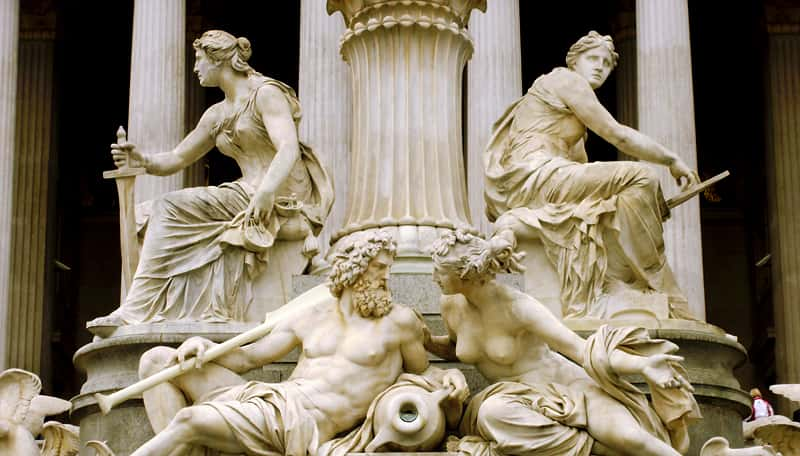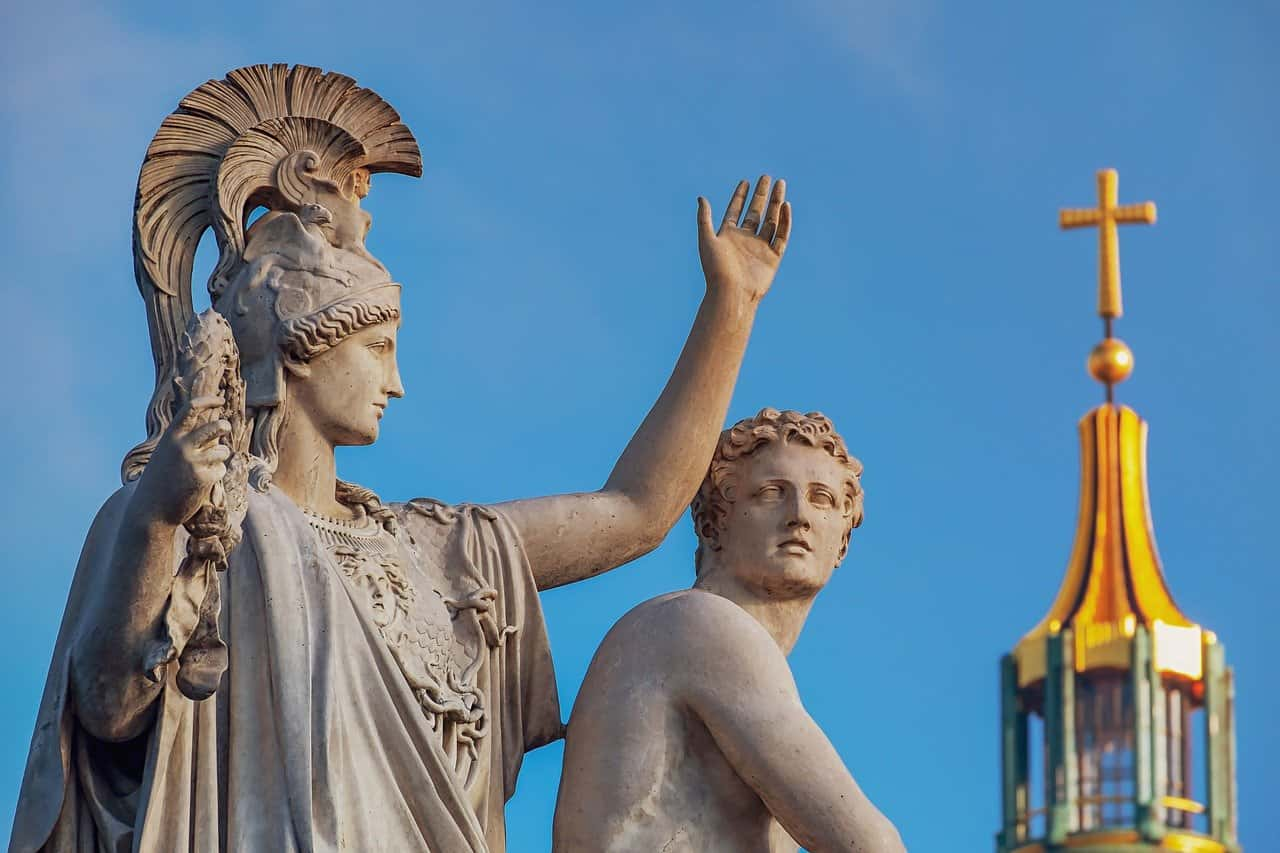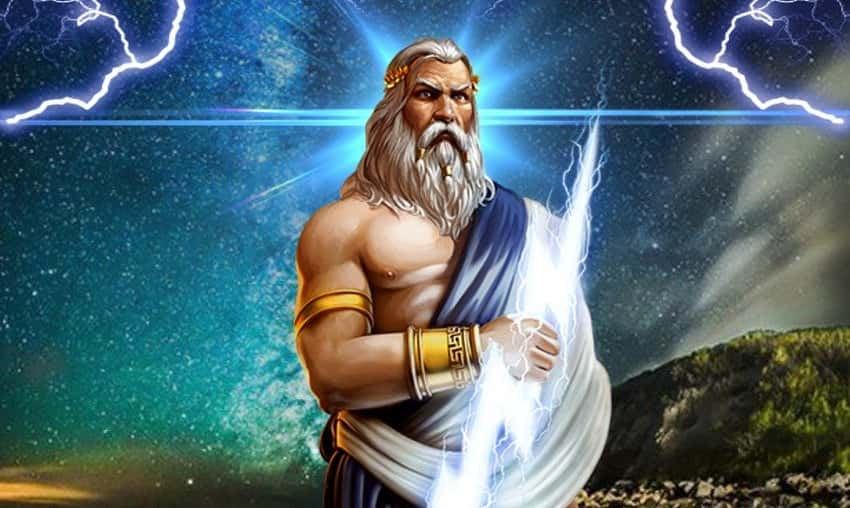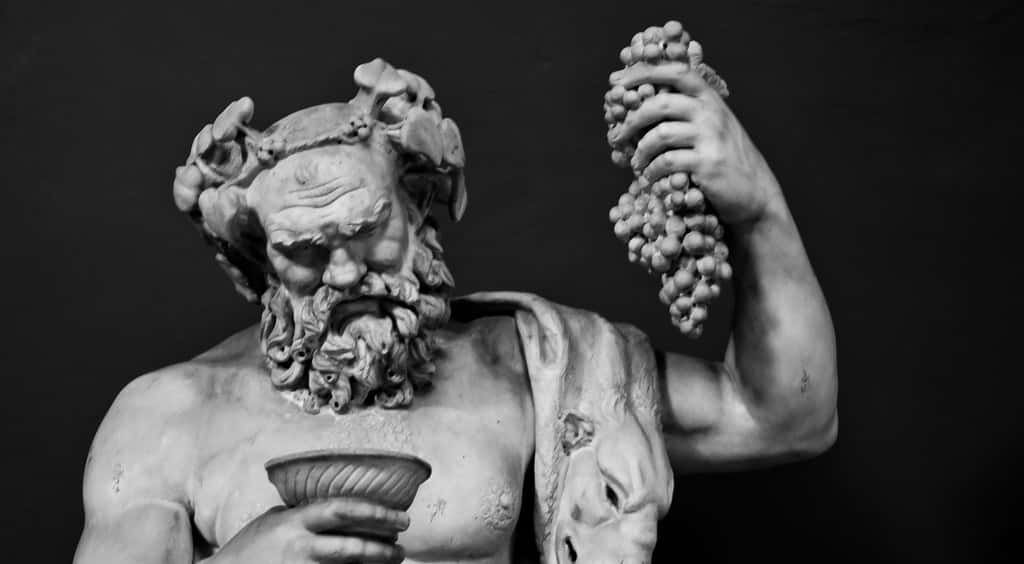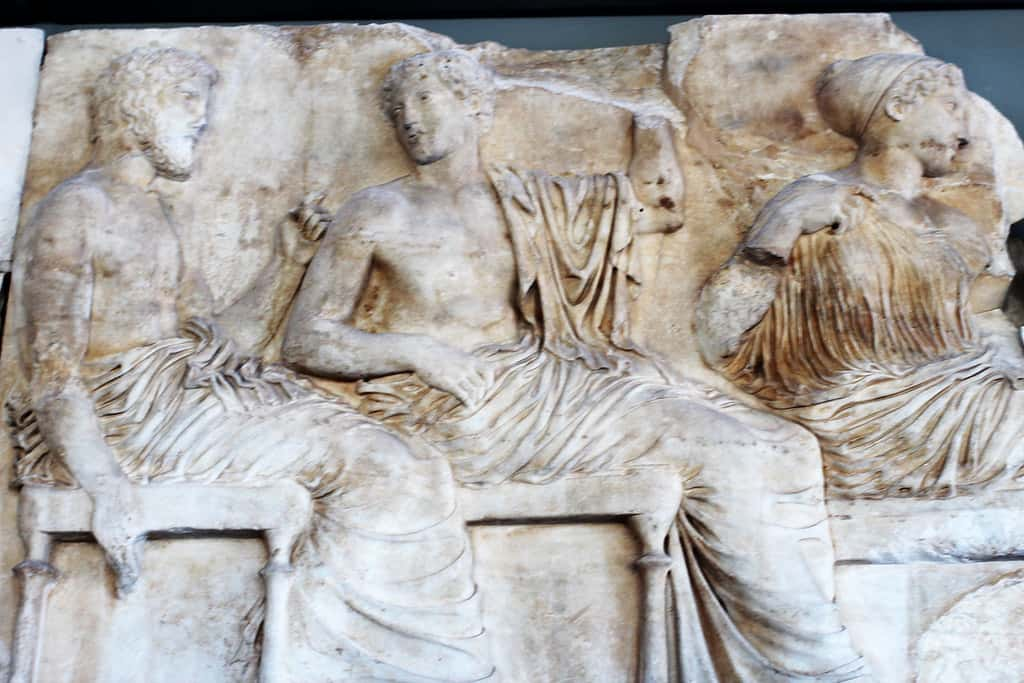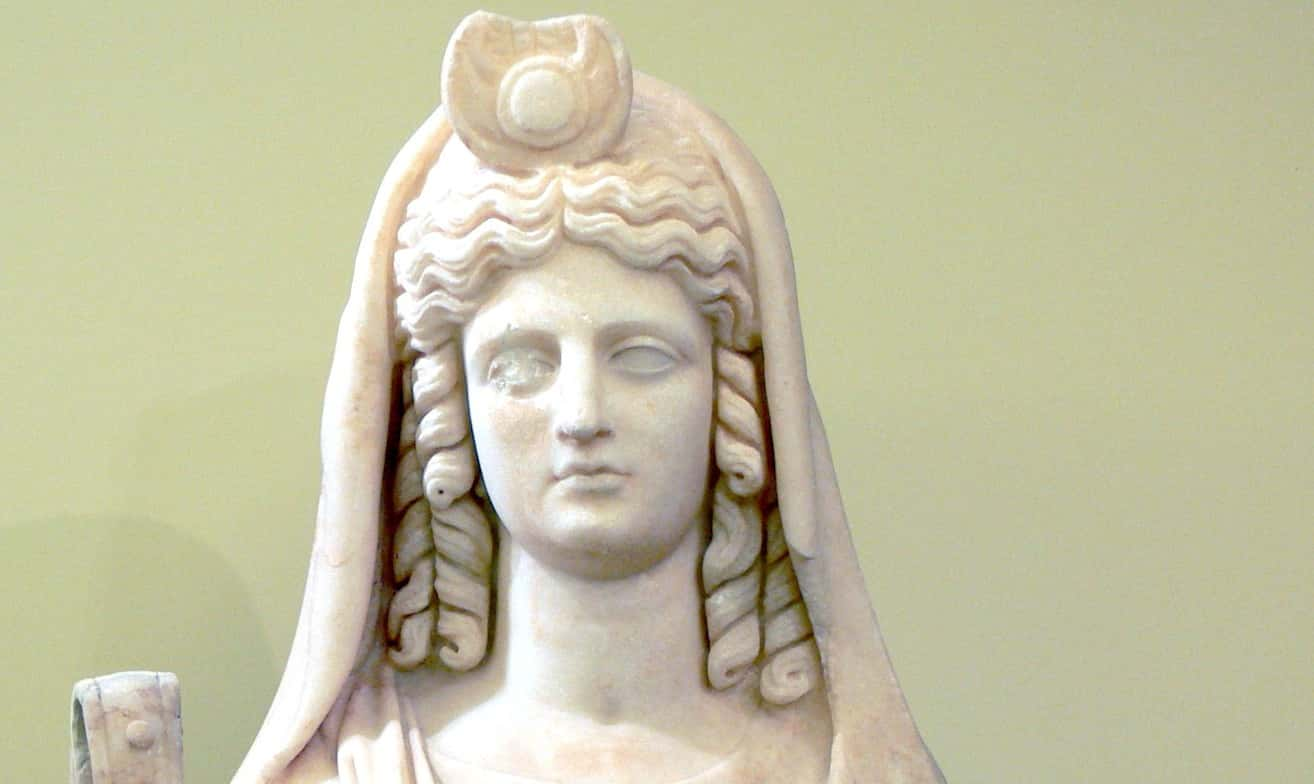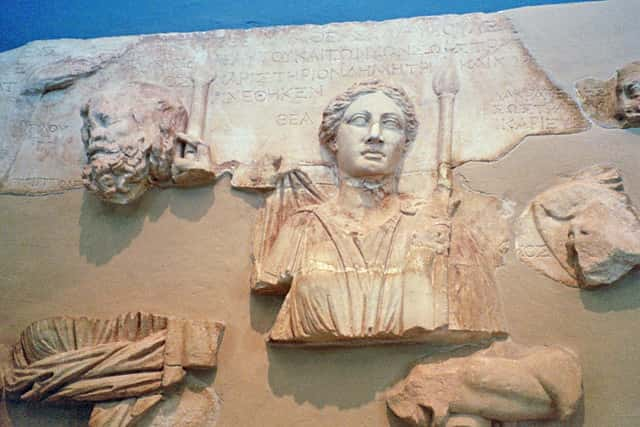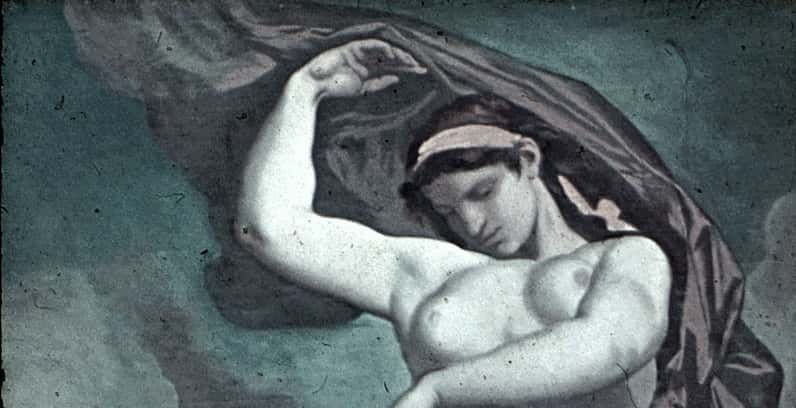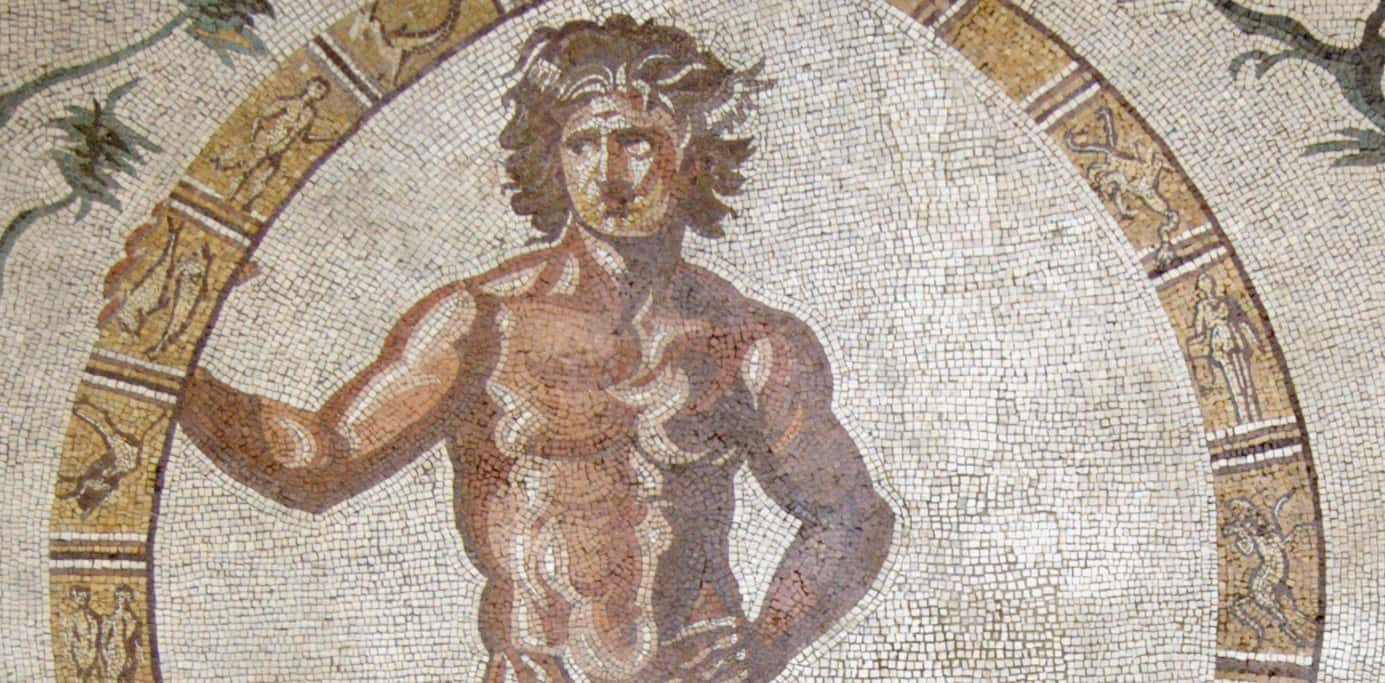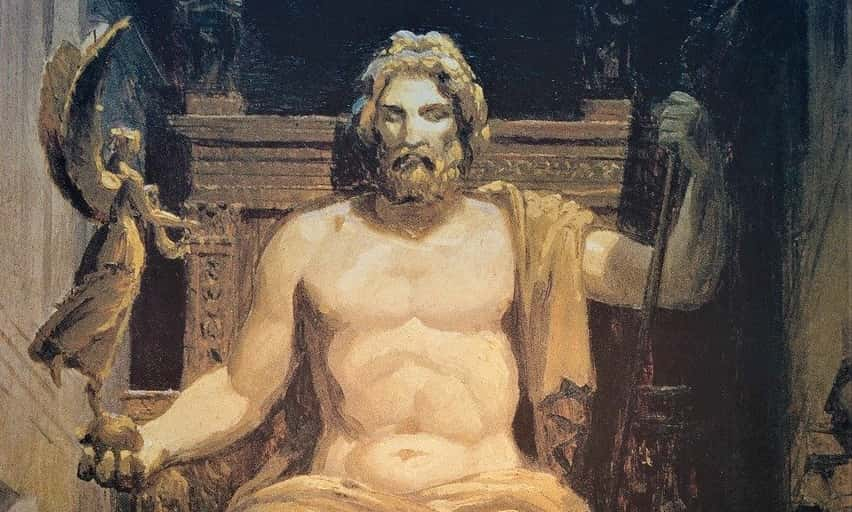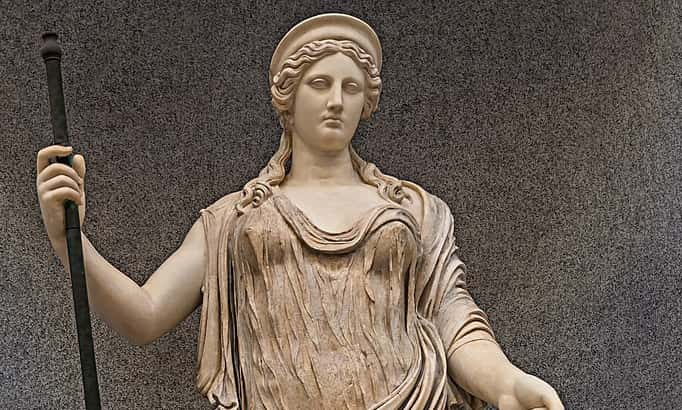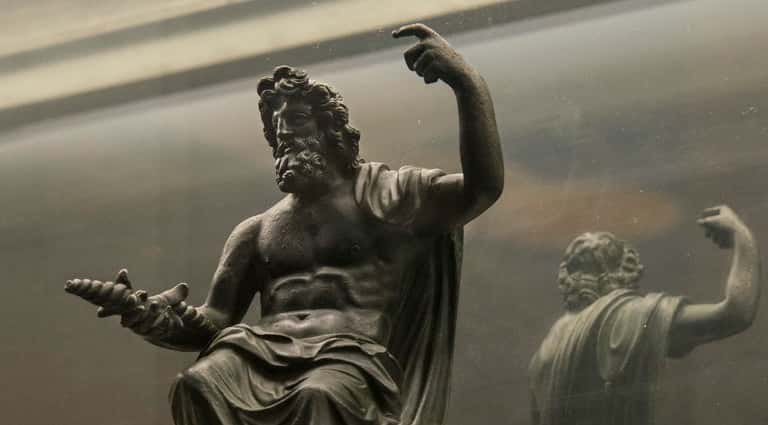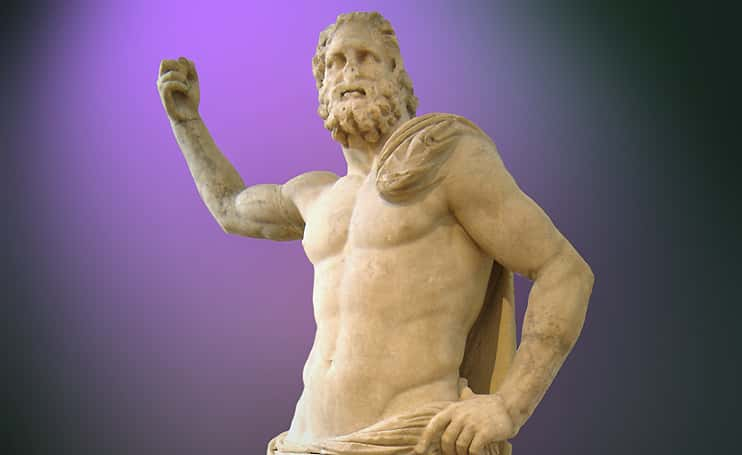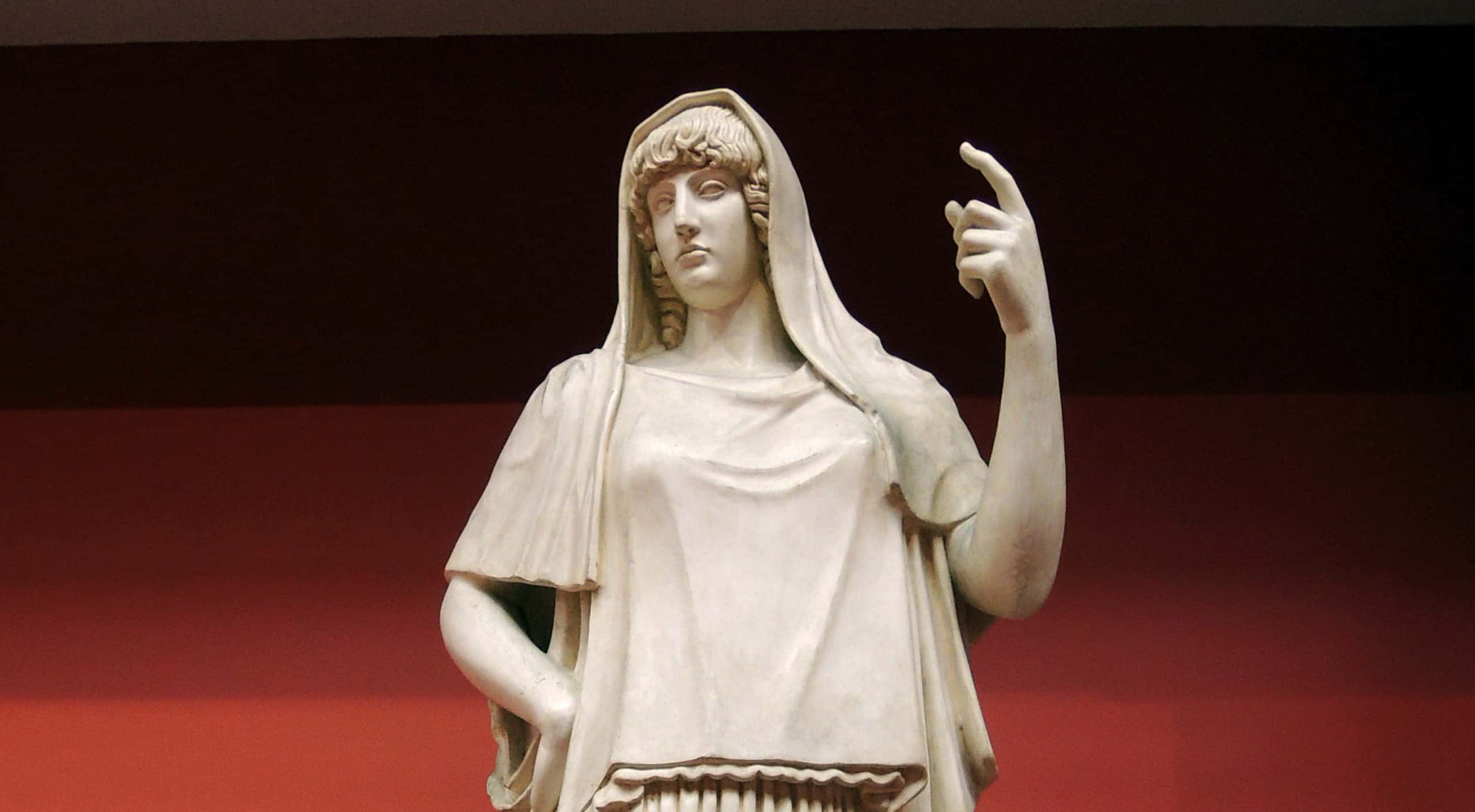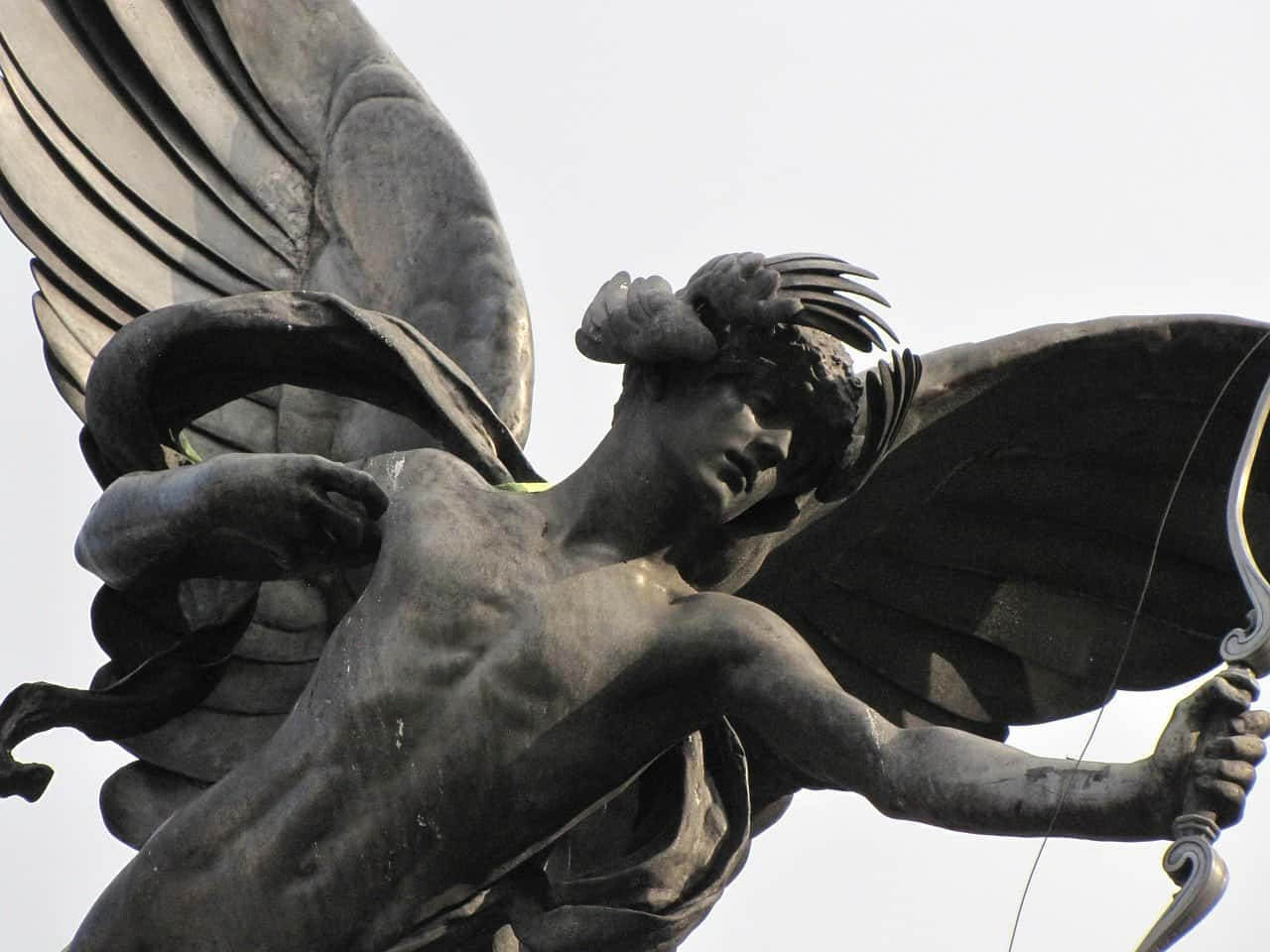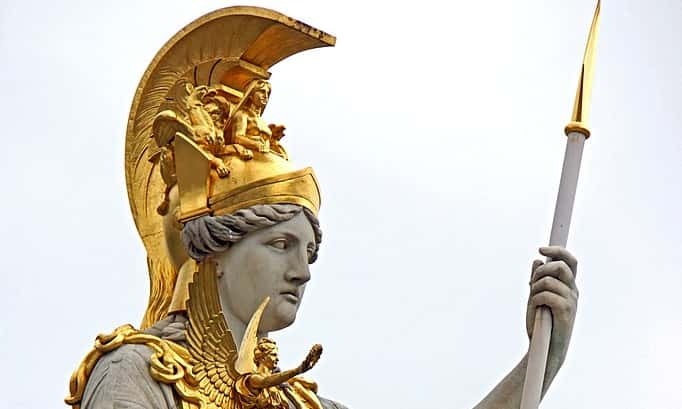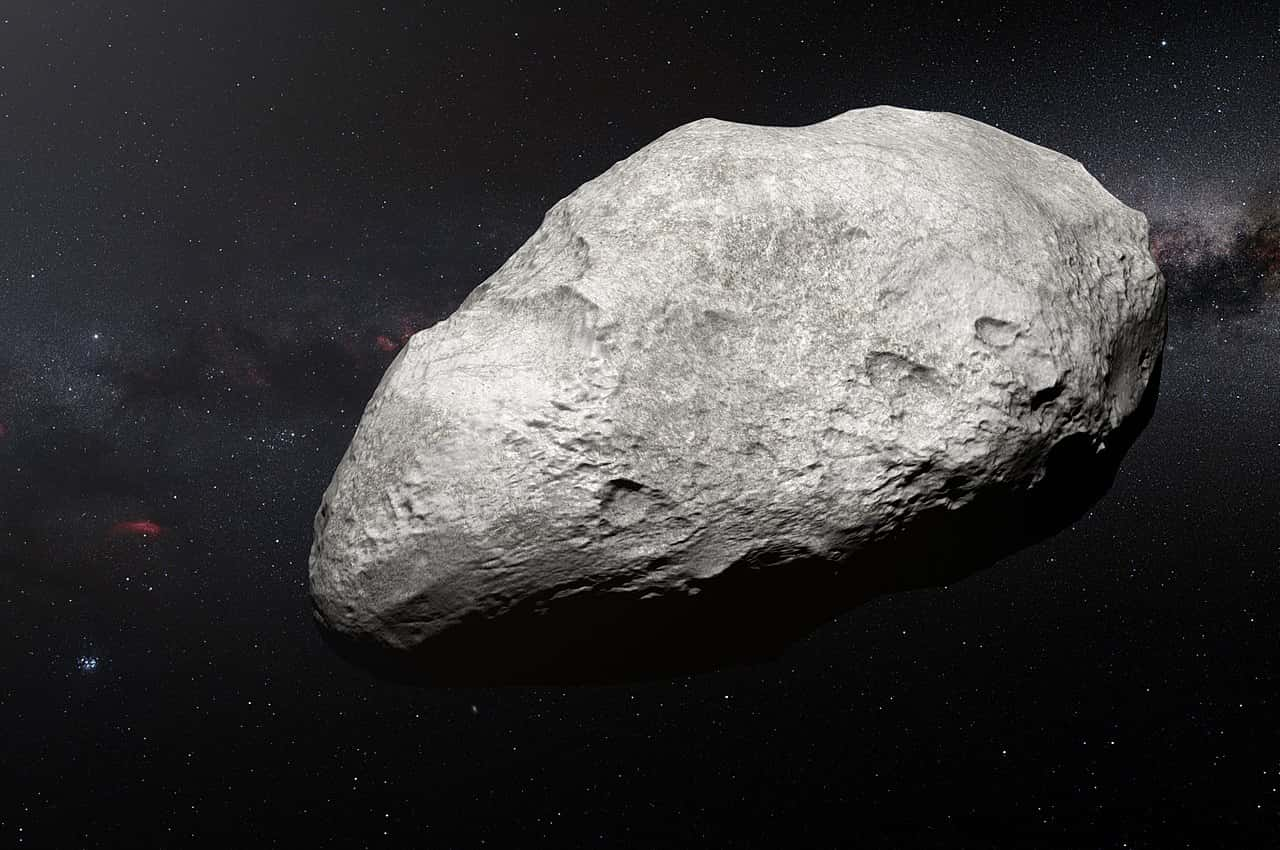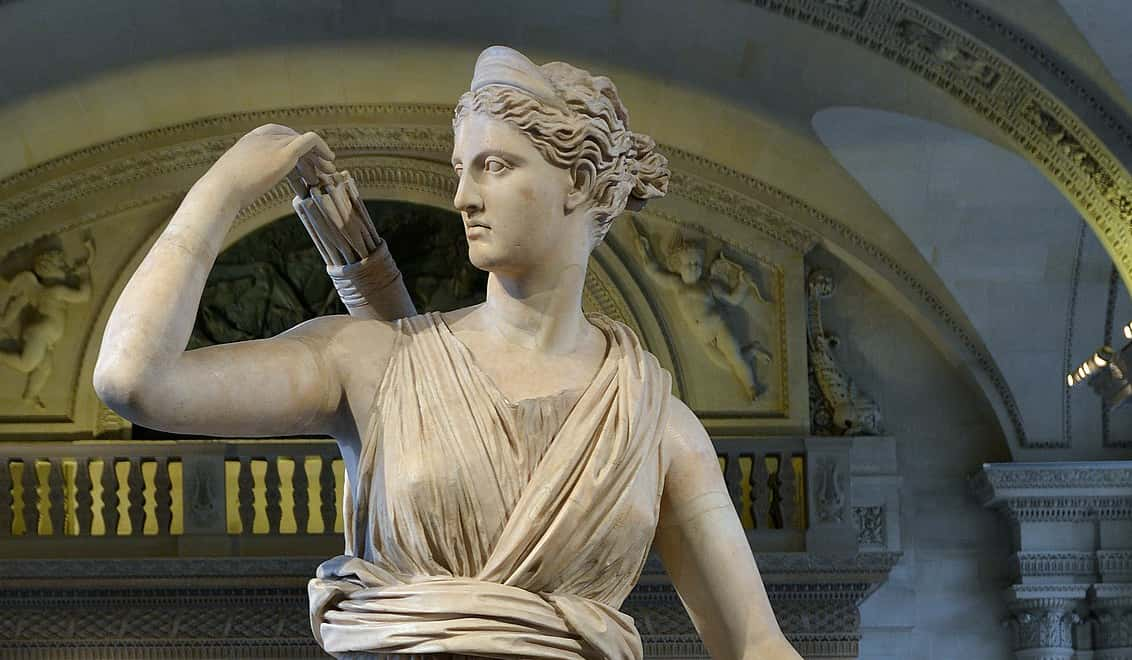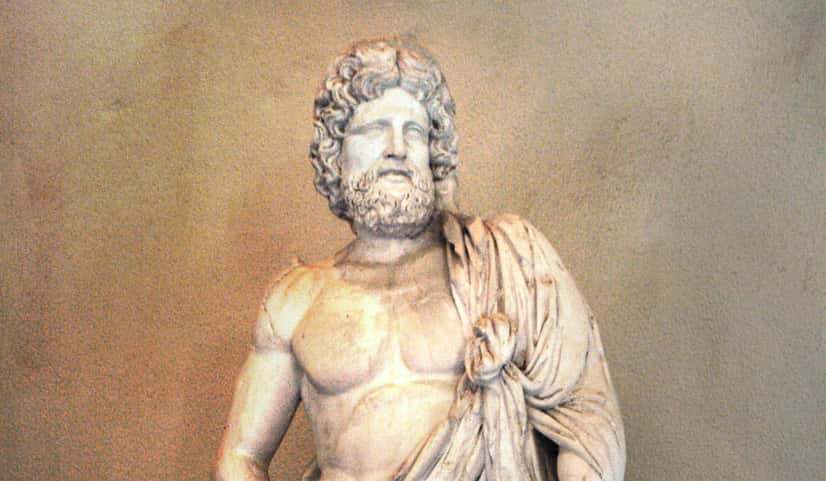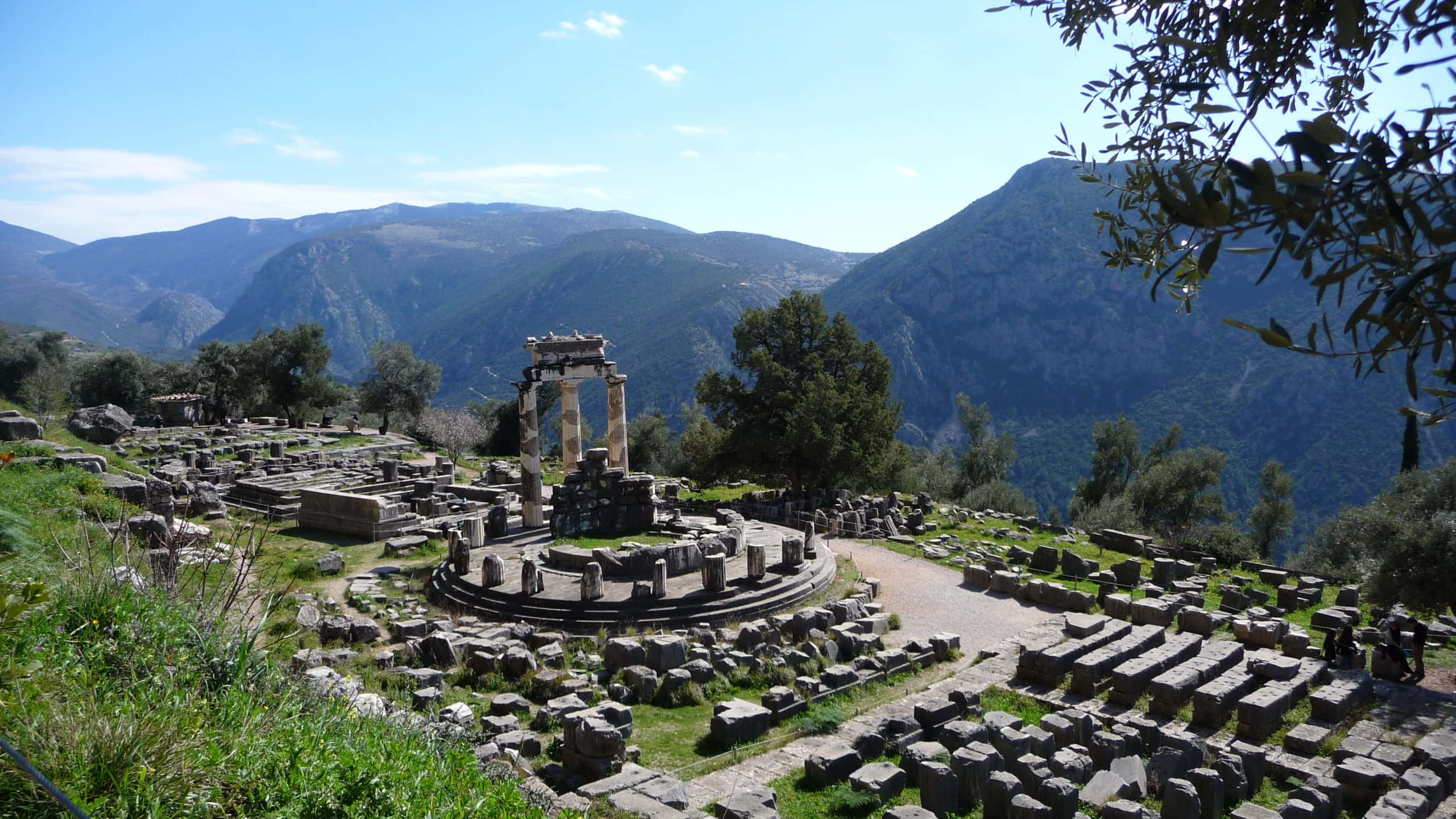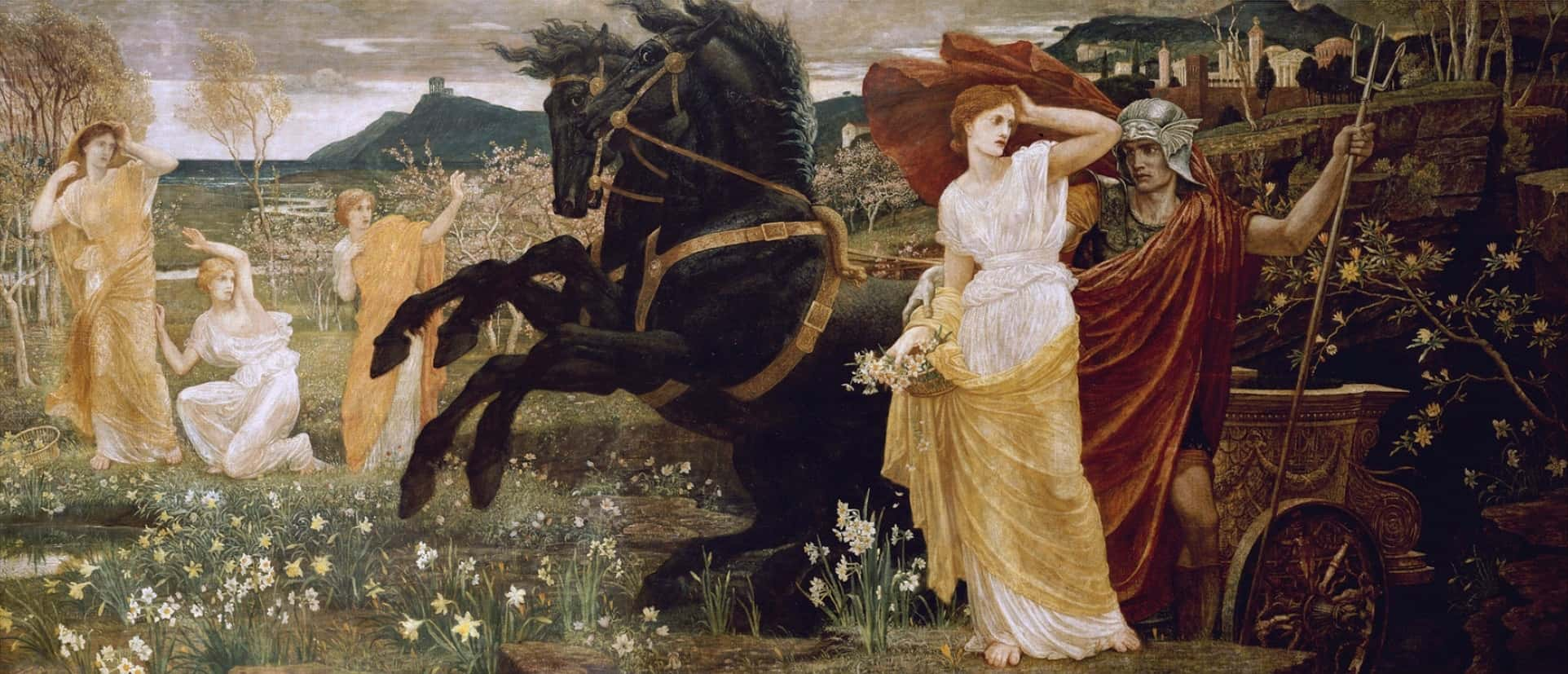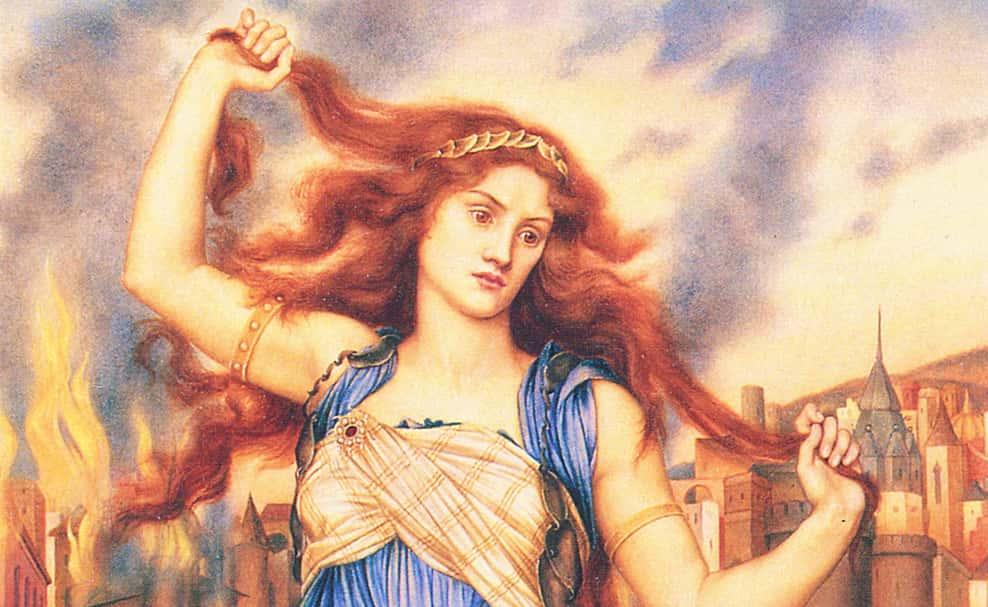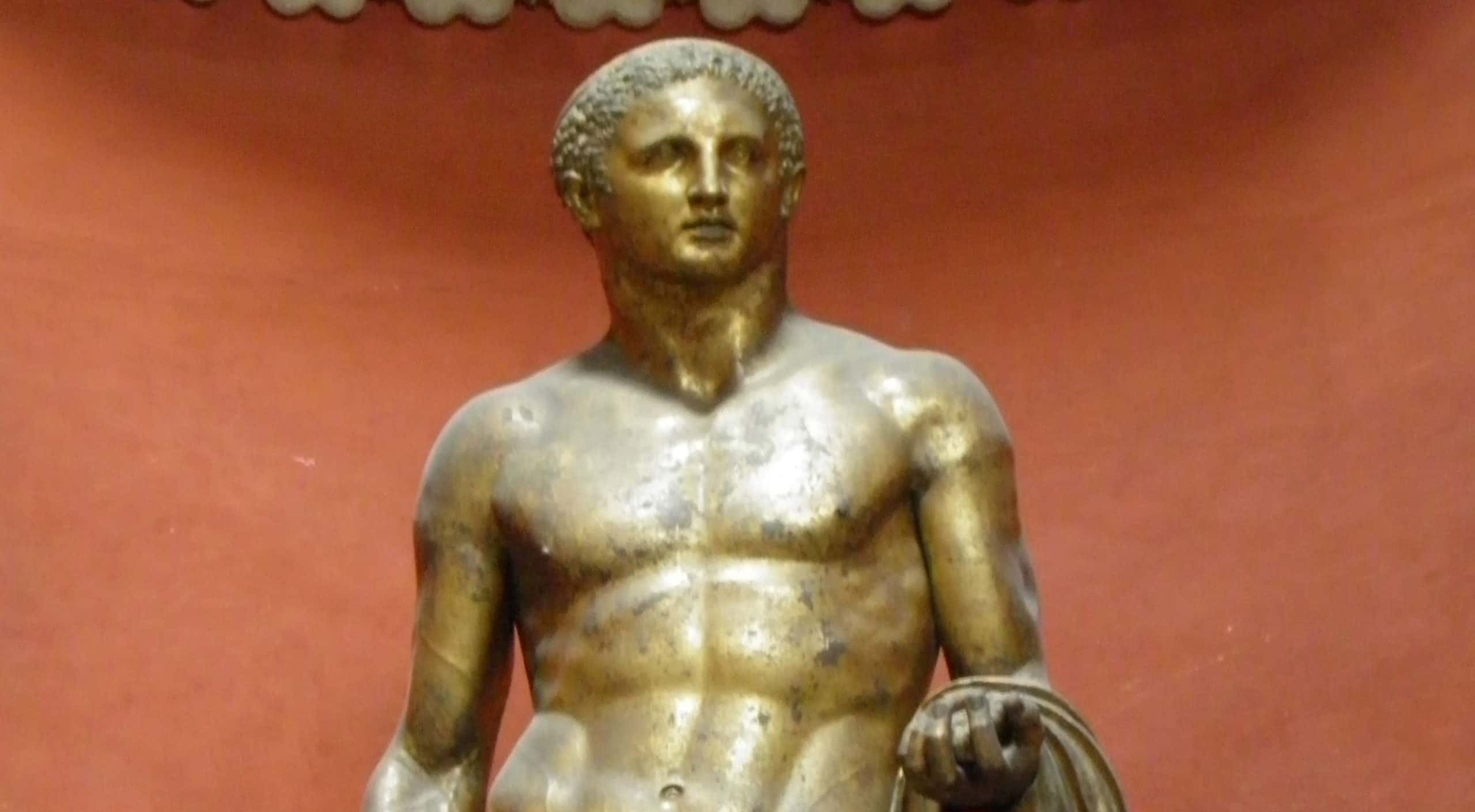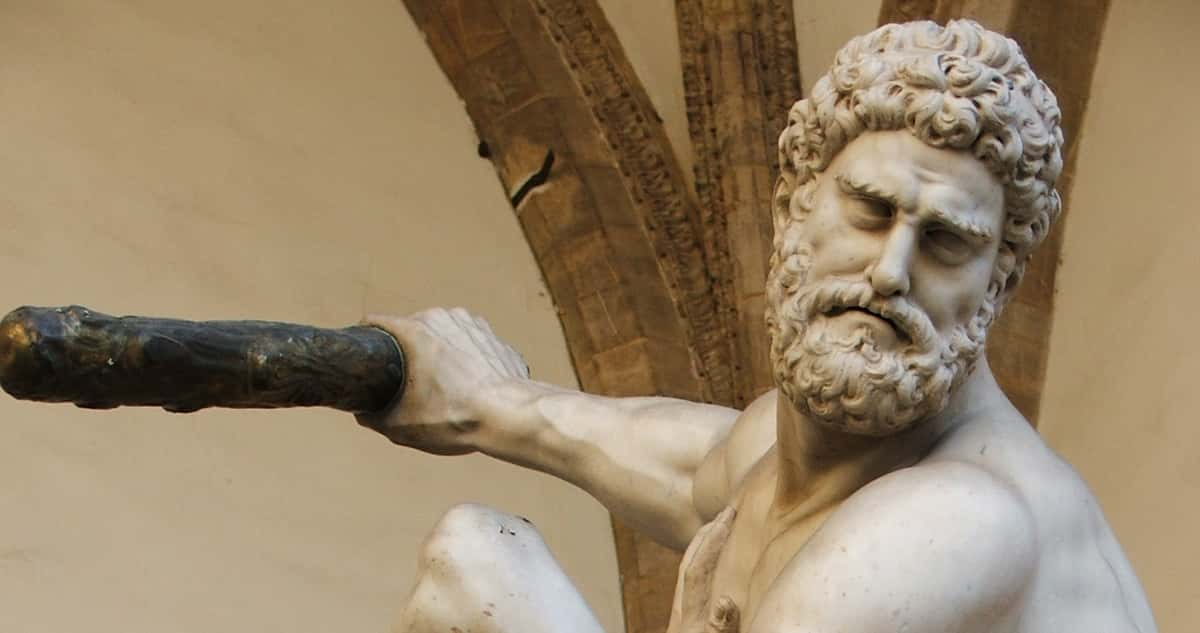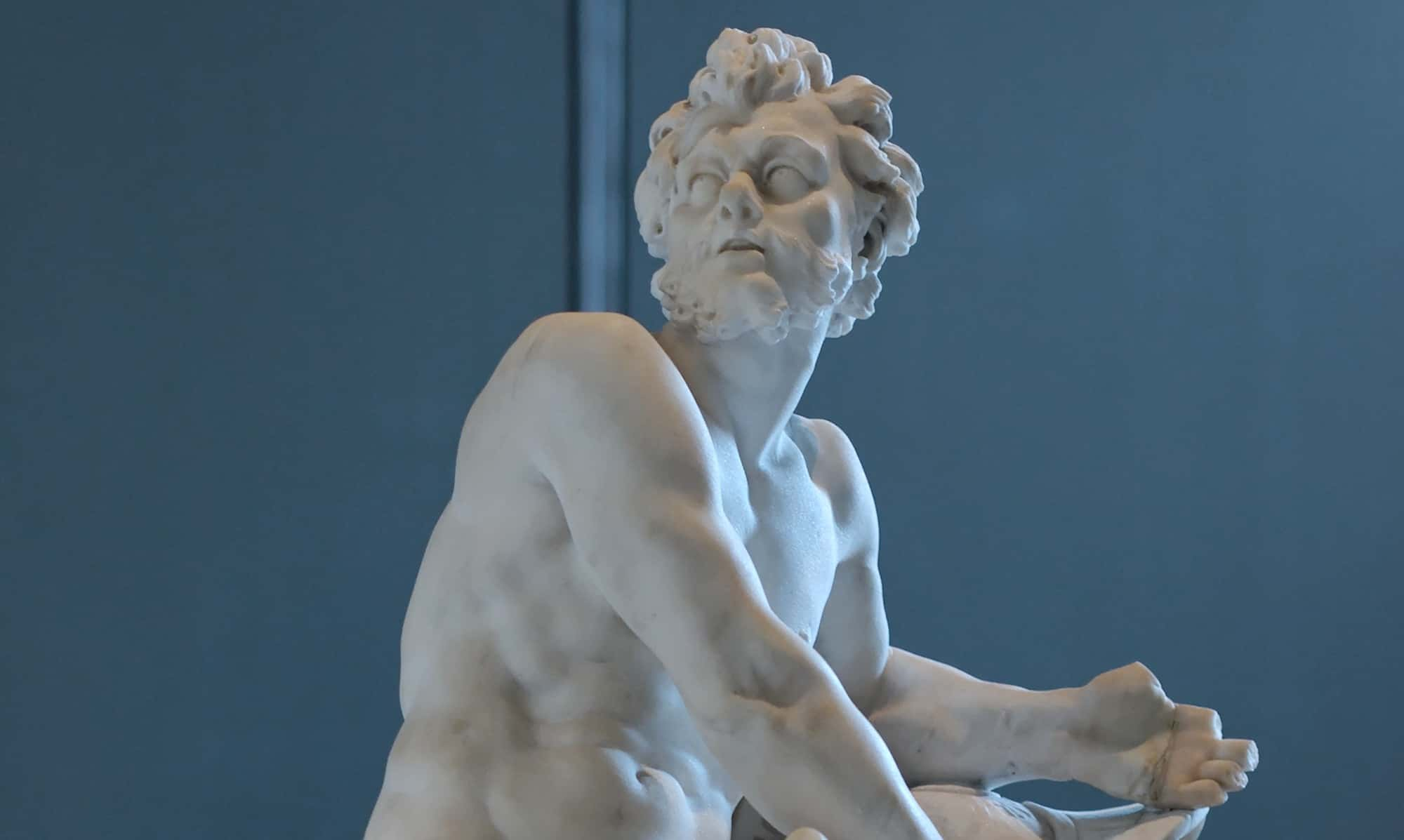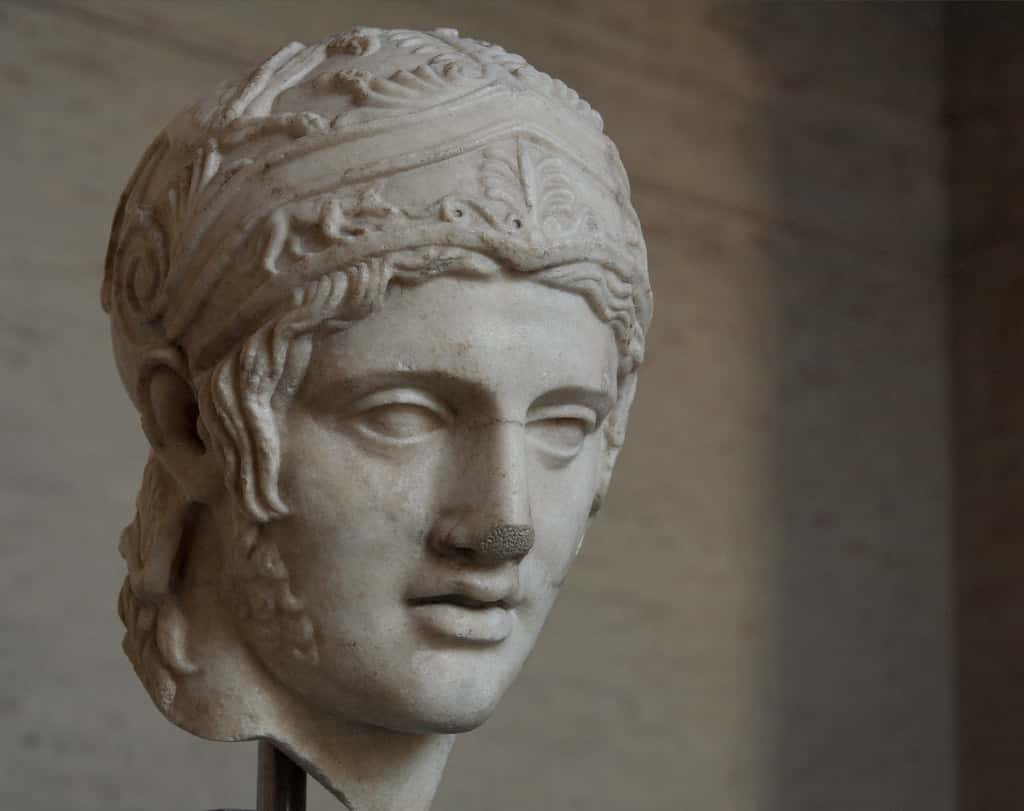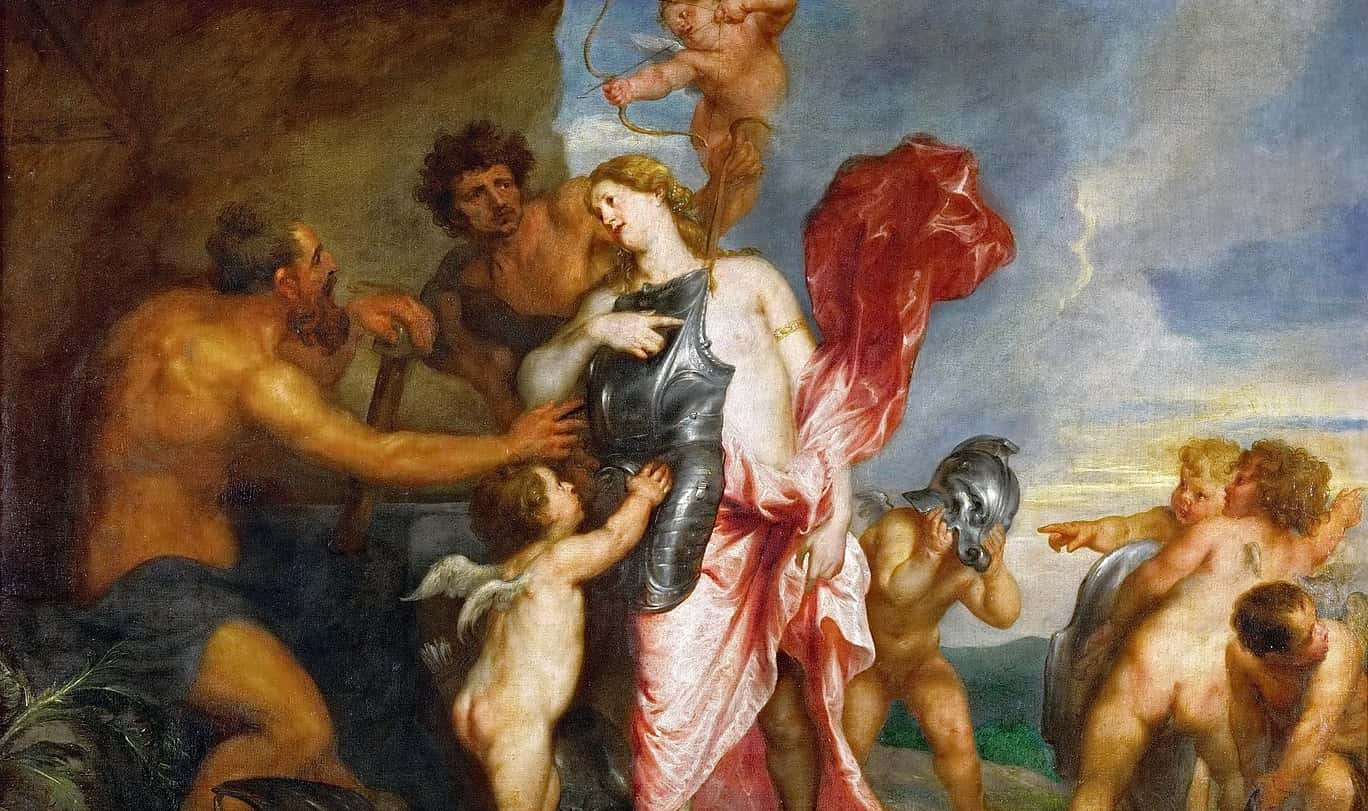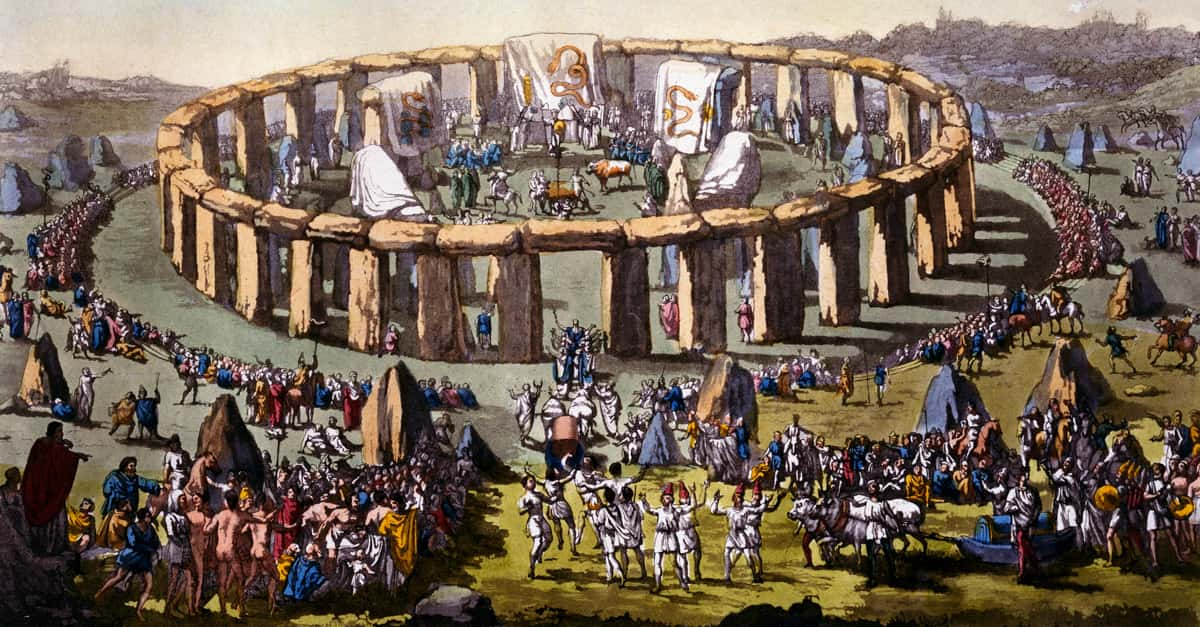We have all heard of the Greek gods, even we don't realize it. They have influenced Western civilization in more ways than you can count. They have inspired the names of planets, scientific terms, places, stories, and so much more. The Ancient Greeks themselves used the gods to explain the unexplainable, while they later became a basis for not one but two mythologies of the ancient world. So what were these famous stories? How exactly did they impact world history? What were some of the details which you never learned about in school because they were too violent or taboo? Find out more with this list below!
Greek Gods Facts
51. Acclaimed Antiquity
Due to their legacy as an ancient religion, the Christian church initially tried to suppress the myths and the Greek gods. However, they were impossible to dislodge from society and history.
50. Baker’s Dozen
There were twelve Greek gods with thrones on Mt. Olympus, but the Greeks couldn’t agree on who exactly those twelve gods were. Zeus, Hera, Poseidon, Apollo, Artemis, Hermes, Athena, Demeter, Ares, Hephaestus, and Aphrodite all appear consistently on the list of Olympians (as they’re called), but the last throne is split in the sources between either Hestia or Dionysus.
49. Disney Actually Got Something Right??
Hades was a major god in Greek mythology, since he was the Lord of the Dead, but his realm was far from Mt. Olympus. As a result, he is not counted among the Olympians, since his throne wasn’t there.
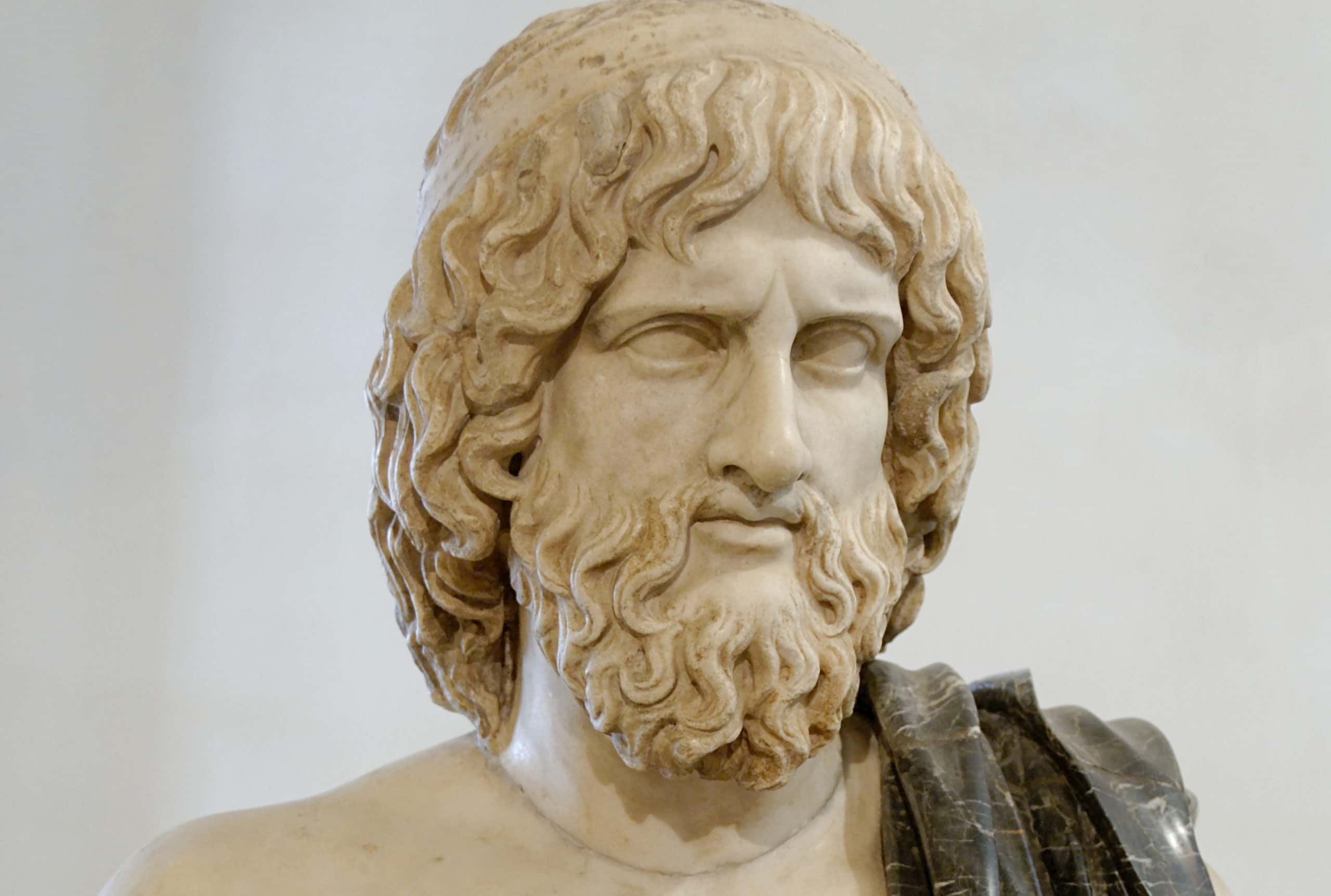 Wikimedia.Commons
Wikimedia.Commons
48. Good to be the King
Zeus was the allfather of the Greek gods, ruling supreme in the sky. Although he was married to Hera, Zeus famously sired many children with gods, nymphs, titans, and mortals alike. The term “allfather” wasn’t a metaphor!
47. Flip a Coin for it?
Ancient Greek sources disagree on whether Dionysus or Hestia sits on the twelfth throne of Mt. Olympus. However, there is no record of the ancient sources telling the story that Hestia gave up her seat to Dionysus to sit by the hearth. That appears to be a more modern invention to justify why the sources are split on these two being named as the twelfth god.
46. Leave it to Lady Luck!
According to the myths, Zeus and his brothers drew lots to decide who would rule which parts of existence. Despite being the youngest brother, Zeus became ruler of the earth and the sky, Poseidon got the sea, and Hades ruled the Underworld.
45. Family Man
When it comes to the Olympian gods, Zeus was the father of seven of them: Apollo, Artemis, Hermes, Ares, Athena, Hephaestus, and Dionysus. The man really got around!
44. Targaryen Style
Many of the gods who begat children with each other were also related to each other. Hades married Persephone, his niece, who was also the daughter of Zeus and Demeter, a brother/sister pairing. Hera and Zeus were also siblings who produced Hephaestus and Ares. Interestingly, Hephaestus was known for his ugly, misshapen appearance and Ares was known for a psychopathic joy in violence. Persephone turned out decently, though!
43. D’Oh!
The oldest surviving sources for information on the Greek gods are The Iliad and The Odyssey by the blind poet Homer. (His blindness may be the reason he had no idea about the color blue).
Another poet, Hesiod, discusses the history of the world’s creation and the development of humankind with the gods’ help in his works Theogony and Works and Days.
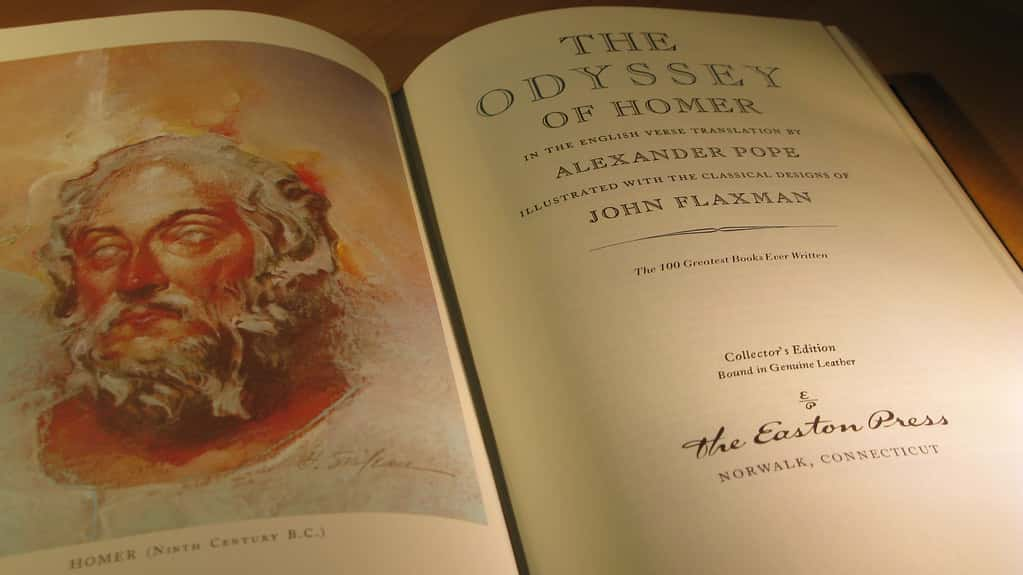 Flickr
Flickr

History's most fascinating stories and darkest secrets, delivered to your inbox daily.
42. Just as Long as Matt Damon Isn’t There
Hades, the god of the dead, also gave his name to the underworld itself. Regions of the underworld included Tartarus (where the wicked were punished), Elysium (where heroes and the children of the gods went after they died) and the Asphodel Meadows (where everyone else went—the Hufflepuff of the afterlife).
41. And the Gang’s All Here
Besides the twelve Olympians (or thirteen, if we’re being technical), there were many other gods on Mt. Olympus. Among them were the Muses, Ganymede, Iris, and Eilythia.
40. Clash of the Giants
The greatest challenge the Greek gods ever faced was brought against them by Gaia, who basically got sick of whoever was in charge and plotted to overthrow them. In this case, Gaia produced the giants, fearsome monsters who were prophesied to defeat the gods unless they had help from the mortal hero who could save them. That hero happened to be Heracles, and in a great conflict known as the Gigantomachy (sweet name, by the war), the giants fought against Heracles and the gods, ultimately being defeated by their combined efforts.
39. Back When the World was New
According to the Greek myths, the ancestors of the gods were the titans. These were godlike beings who were born of Gaia (the Earth) and Uranus (the sky), who also happened to be mother and son. Uranus was a cruel being who imprisoned many of his children within Gaia, much to her fury. One of the titans, named Cronos, was given a sickle by Gaia which was either made of stone or adamantium, depending on the version of the myth. Either way, though, he used this sickle to ambush and castrate his father!
38. Like Father Like Son
Because Uranus was immortal, he couldn’t be killed, but he also couldn’t create life anymore, which meant he simply remained as the embodiment of the sky. However, he did curse his son, vowing that Cronos would be undone by his own children just as he’d undone his dad. Understandably paranoid, Cronos resolved this issue by swallowing each of his babies as they were born. Little did he know, though, that his wife, Rhea, hid the last baby from him, giving him a stone wrapped in swaddling clothes instead. The baby in question was Zeus.
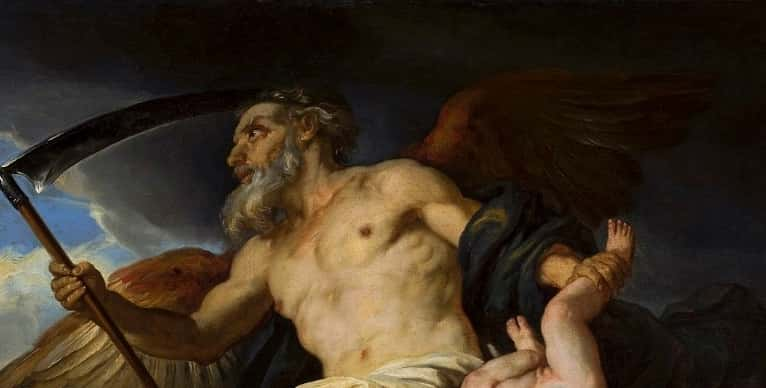 Wikipedia
Wikipedia
37. Titanomachy
Zeus eventually grew up and returned in disguise to his parents. He freed his other siblings by having Cronos eat an emetic which caused him to vomit up the other kids (who had all still been alive inside his stomach for who knows how long). Zeus also released several beings imprisoned by Cronos, such as the Cyclops, to join the gods. Other titans joined them as well, and after a cataclysmic war, the gods proved triumphant against the titans, imprisoning them and making a new order in the world.
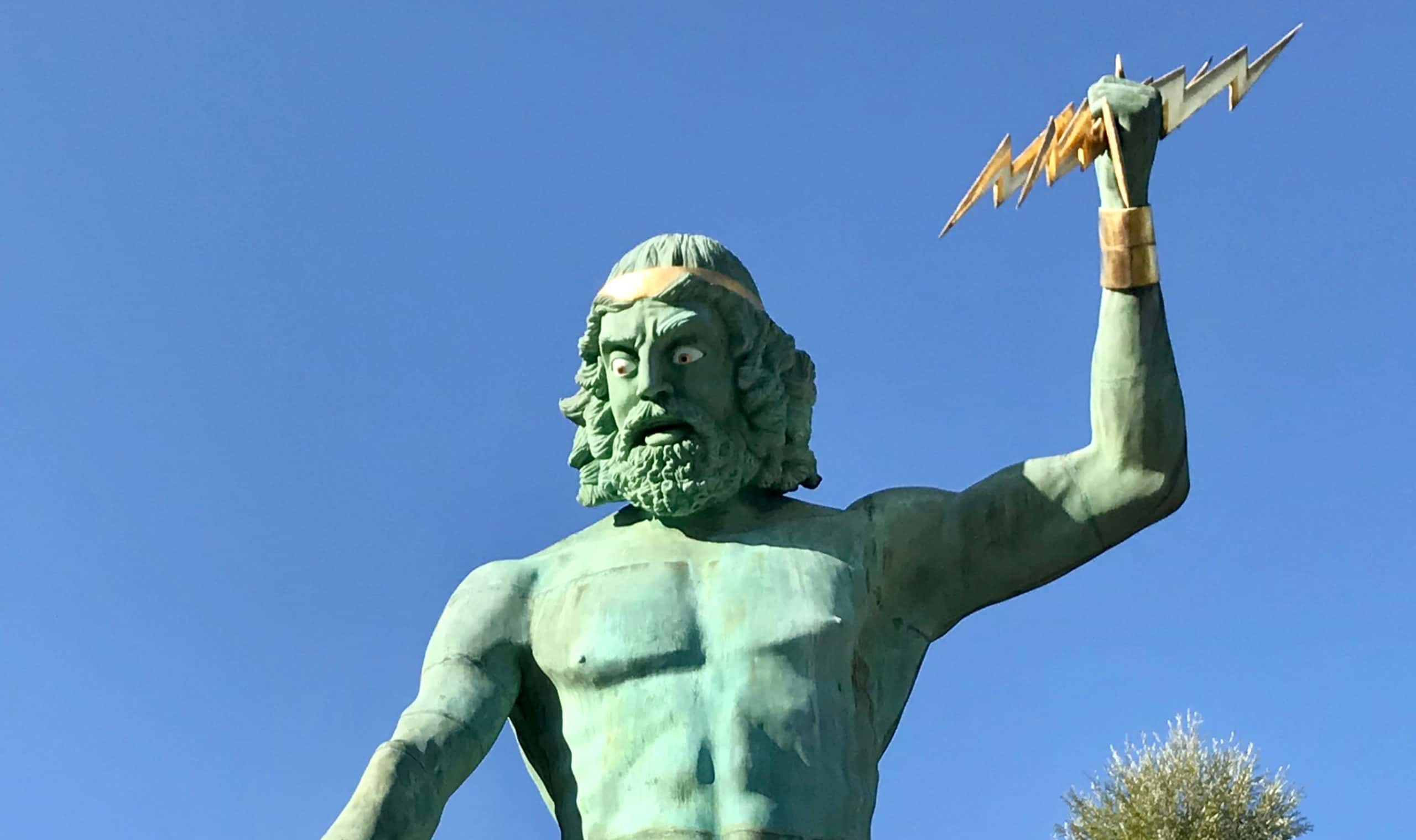 Wikimedia.Commons
Wikimedia.Commons
36. The Water-Carrier
Zeus wasn’t just after the ladies. According to such writers as Homer, Ganymede was a Trojan prince who was deemed the most beautiful man in the world (eat your heart out, Narcissus!). Zeus had an eye for that sort of beauty as well, so he took the form of an eagle and swooped Ganymede up to Mt. Olympus. There, Zeus made Ganymede immortal, and had him serve as Zeus’s personal cupbearer. Ganymede is also known as Aquarius, the constellation in the sky and a sign of the zodiac!
35. Queen Bee of the World
Hera was the goddess of marriage, childbirth, and family. Frequently, despite her prestige as the Queen of all, she is often portrayed as a jealous shrew of a wife, furious with Zeus constantly sleeping around (though to be fair, what spouse wouldn’t be upset by that?).
34. They Seem Familiar
Aside from being stolen and renamed by the Romans, the Greek gods also shared several traits with other deities throughout the ancient world. Zeus shares traits with both Odin and Thor, the allfather and god of thunder, respectively, in Norse mythology, while the Norse god Wayland the Smith was lame just like Hephaestus. Dionysus, the god of wine, celebrations, and fertility, shares a lot of traits with the Etruscan god Fufluns (who also wins the award for craziest name).
33. I’ll Smite You!
Zeus’s most prominent symbols were the thunderbolt, the eagle, the bull, and the oak tree. In ancient Greek art, Zeus was usually depicted as either sitting down on a throne or walking forward while holding a thunderbolt over his head.
32. Settle a Bet
Hera’s vindictiveness is best represented when she and Zeus had an argument over whether men or women “experienced more pleasure during intercourse.” Luckily, there was a mortal named Tiresias who had spent time as a man and then later as a woman (roll with it). He claimed that women enjoyed sex more than men, making Zeus the winner of the argument. Hera struck Tiresias blind in response to his giving the wrong answer. Zeus, however, gave Tiresias the gift of prophecy as compensation.
 Wikipedia
Wikipedia
31. I Challenge You!
One famous story involving Poseidon, the god of the sea, is when he argued with Athena, goddess of wisdom and war, over who could be the patron god of a prosperous new Greek city. It was determined that they’d each give a gift to the city and whoever gave the better gift won. Poseidon provided the city with a harbor from which ships could sail, but the saltwater was undrinkable. Meanwhile, Athena bestowed the olive tree on the city. The olive tree provided food, oil, and wood, and it was deemed the more valuable gift. Therefore, the city was called Athens, in honor of Athena!
30. I Want My Cut
According to the myths, Hestia was older than all her other siblings (Zeus, Poseidon, Hades, Demeter, and Hera). Hestia was the goddess of the hearth, maintaining the fire of the gods. Therefore, whenever the ancient Greeks burnt a sacrificial offering to the gods, no matter which god it was, Hestia would receive part of the tribute—not a bad deal!
29. I Know Him!
Aphrodite’s son was called Eros, and he was the winged god of lust and love, piercing people’s hearts with darts or arrows, depending on the wording. The Romans (and the rest of the world, really) knew him by a different name: Cupid. But adult things are called "erotic," not "cupotic," so who really got the last laugh?
28. The Art of War vs. Call of Duty Multiplayer
Contrary to what you might assume, Ares and Athena, the god and goddess of war, didn’t get along at all. Athena represented military strategy, generalship, and bringing intelligence into the act of war. The metaphor of Athena being born from Zeus’s head rather than his or anyone else’s loins meant that she favored reason over emotions. By contrast, Ares embodied the mindless savagery of war, embracing the violence and bloodshed with unbridled glee. As a result, the Greeks would often portray Ares in a very negative light in their myths. He’s often absent, in fact, and when he does show up, he’s often ridiculed.
27. Dumb and Dumber
Two of the most fearsome (and stupid) giants whom the gods faced against were the brothers Ephialtes and Otus. These two made a pile of mountains so they could properly challenge the gods and even managed to capture Ares, the god of war, and imprison him inside a large bronze jar (not one of his proudest moments). They were ultimately defeated by trickery, however. Artemis offered herself to Otus as a reward, which made his brother envious. As the two giants argued, Artemis jumped between them, disguised as a doe. Distracted, the two giants both threw their spears at the doe, but Artemis dodged them. Each of the brothers were killed by each other’s spear, making for a pretty embarrassing story to tell down in Tartarus.
26. Wait, What??
It turns out that the oldest of the Greek gods, at least by age, is actually Aphrodite. Her origin story also happens to be one of the strangest in the entire myths (and that’s saying a lot!). When Cronos first overthrew his father, castrating him with his sickle, the severed genitals flew through the air before landing in the sea. A great foam arose, and Aphrodite rose naked from the sea (no doubt leaving witnesses to the event with a lot of confused feelings). This technically makes her Zeus's aunt, but honestly at this point, who's keeping track anymore?
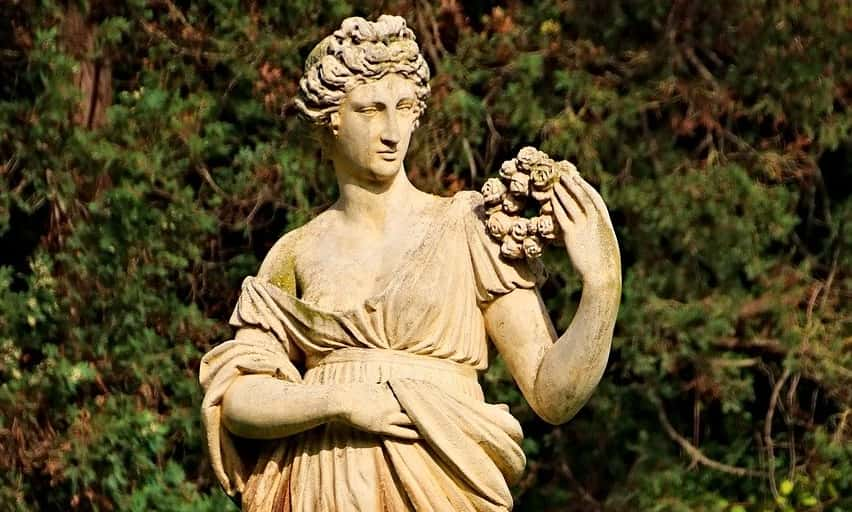 Pixabay
Pixabay
25. Bisexual Brothers
Like his brother, Zeus, Poseidon had male and female lovers. Nerites became Poseidon’s charioteer in the tradition of Ganymede also serving his lover, Zeus. Poseidon also fathered children with Gaia (aka Mother Earth herself), Aphrodite, and Aethra (who gave birth to the Greek hero Theseus).
24. The Godly Hallows
Releasing the Cyclops from imprisonment turned out to be one of Zeus’s best ideas. Skilled smiths, the Cyclops forged powerful weapons for the gods to use in their war against the titans. Zeus received his iconic thunderbolts, Poseidon got a trident, while Hades received a Cap of Invisibility, in keeping with their later positions as ruler of the sky, sea, and underworld.
23. Apple of her Father’s Eye
At one point, Zeus had a sexual relationship with the wise titan named Metis. However, this turned sour when Zeus heard the prophecy which stated that any children born of Metis would surpass their father, and Metis was pregnant with Zeus’s kid. Zeus resolved the issue by swallowing Metis whole (most versions of the myth clarify that Metis was in the form of a fly when Zeus swallowed her, making it somewhat easier for him to do).
Later, Zeus was either with Hephaestus or Prometheus when he began feeling an agonizing headache. Whoever was with him at the time (the myths vary on who exactly helped Zeus out) took a large axe and split Zeus’s skull open—you know, how you fix a headache? From out of that cut sprang Zeus’s daughter, Athena, armed for battle. She was Zeus’s favorite daughter, much to the chagrin of Zeus’s other kids. Ares, the other god of war, even accused his dad of playing favorites because he’d literally fathered Athena himself.
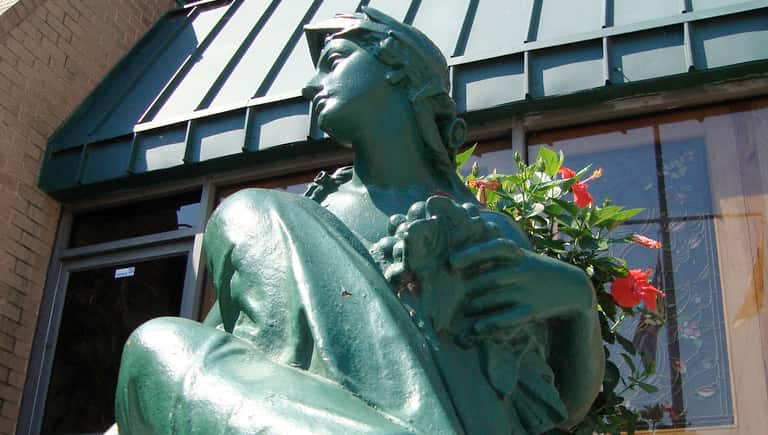 Flickr
Flickr
22. Space is the Place!
Aside from Earth, nearly all the planets in our solar system are named after the Roman versions of Greek gods. These planets in question are Mercury (Hermes), Venus (Aphrodite), Mars (Ares), Jupiter (Zeus), and Neptune (Poseidon). Pluto (Hades) is sadly no longer considered a planet, while the other two (Saturn and Uranus) are named after Zeus’s father (named Cronos by the Greeks) and grandfather, respectively.
 Pixabay
Pixabay
21. Left Out? Not Anymore!
You might have noticed that Hephaestus didn’t get a planet named after him. You’ll be happy to know that in 1978, Soviet astronomer Lyudmila Chernykh named a new minor planet (now considered an asteroid) “2212 Hephaistos” in the smith god’s honor.
20. Live Long and Prosper
Whether you know it or not, you’ve also become very familiar with another planet named after Hephaestus. In this case, it’s a fictional planet, and they used his Roman name. You might know the planet as Vulcan from the Star Trek franchise!
19. I’m Phoebus. It Means… Sun God
Apollo was the god of the sun (although the titan Helios did the heavy lifting by managing the sun’s chariot). Apollo was also the god of medicine, healing, music, the arts, archery, and prophecy. His symbols were the bow and arrow, the raven, the lyre, and the snake.
18. Master of Disguise
Among the many masquerades which Zeus assumed in his quest to cheat on Hera were an eagle, an ant, a swan, a dove, a bull, and a shower of golden light. Let nobody say he wasn’t creative!
17. The Romans Call Me Diana
Artemis was Apollo’s twin sister. While Apollo was associated with the sun, Artemis was associated with the moon. She was also the goddess of the hunt, the wilderness, virginity, and childbirth (though how those last two go hand-in-hand is anyone’s guess). Artemis kept company of nymphs who, like her, kept their virginity and preferred hunting and sporting together.
16. Is There a Doctor in the House?
Apollo’s son, Asclepius, became even more affiliated with medicine than his dad. He was such a skilled physician that he could reverse death. This angered the god Hades, who complained that he was being short-changed on the deal that he’d made with Zeus. In response, Zeus killed Asclepius with a thunderbolt, much to Apollo’s fury. Some versions of the myth claim that Asclepius was resurrected as a god, or as a constellation in the sky. Either way, Asclepius’ personal staff, entwined by serpents, has become the symbol for medicine in the Western world to this day!
15. Reminds Me of a Certain Dark Wizard
Because he was the god of the dead, Hades was a terrifying figure to those who worshipped him with the other gods. Whenever they sacrificed to him, they averted their faces. He was rarely depicted in artwork due to the intense fear of death in society. Even his name, so associated with death, was rarely used in oath-making or conversation. According to the ancient king Agamemnon, “Why do we loathe Hades more than any other god, if not because he is so adamantine and unyielding?”
 Wikimedia.Commons
Wikimedia.Commons
14. Bygones be Bygones
Hera only got over her hatred of Heracles when he saved her, as well as the other gods, from the giants (more on that later). Hera even offered her daughter, Hebe (and thus Heracles’ cousin) to be his bride when he took his spot amongst the Immortals.
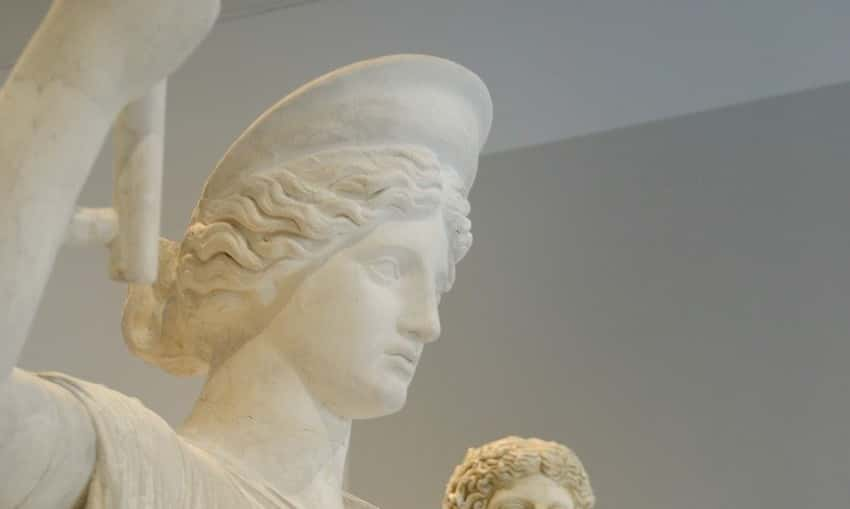 Wikimedia.Commons
Wikimedia.Commons
13. Part-Time Fortune Teller
One of the most enduring aspects of Apollo’s legacy is the Oracle at Delphi. People would travel all across the ancient world to consult the oracle on their problems, or concerns for the future. The oracle would speak in cryptic answers from which one must draw out the meaning. Apollo was said to possess the high priestesses and answer through them.
12. Gone but Not Forgotten
You might be wondering what happened to Cronus, the father of half the Greek gods. Well, after he was overthrown, he was imprisoned with the other titans. However, he had a more enduring legacy in human history. As interpretations went on, his sickle became a scythe, and he became associated with the harvest. During the Renaissance, this led to Cronus becoming the embodiment known today as “Father Time.” There is also, of course, the planet named after him, but we already covered that.
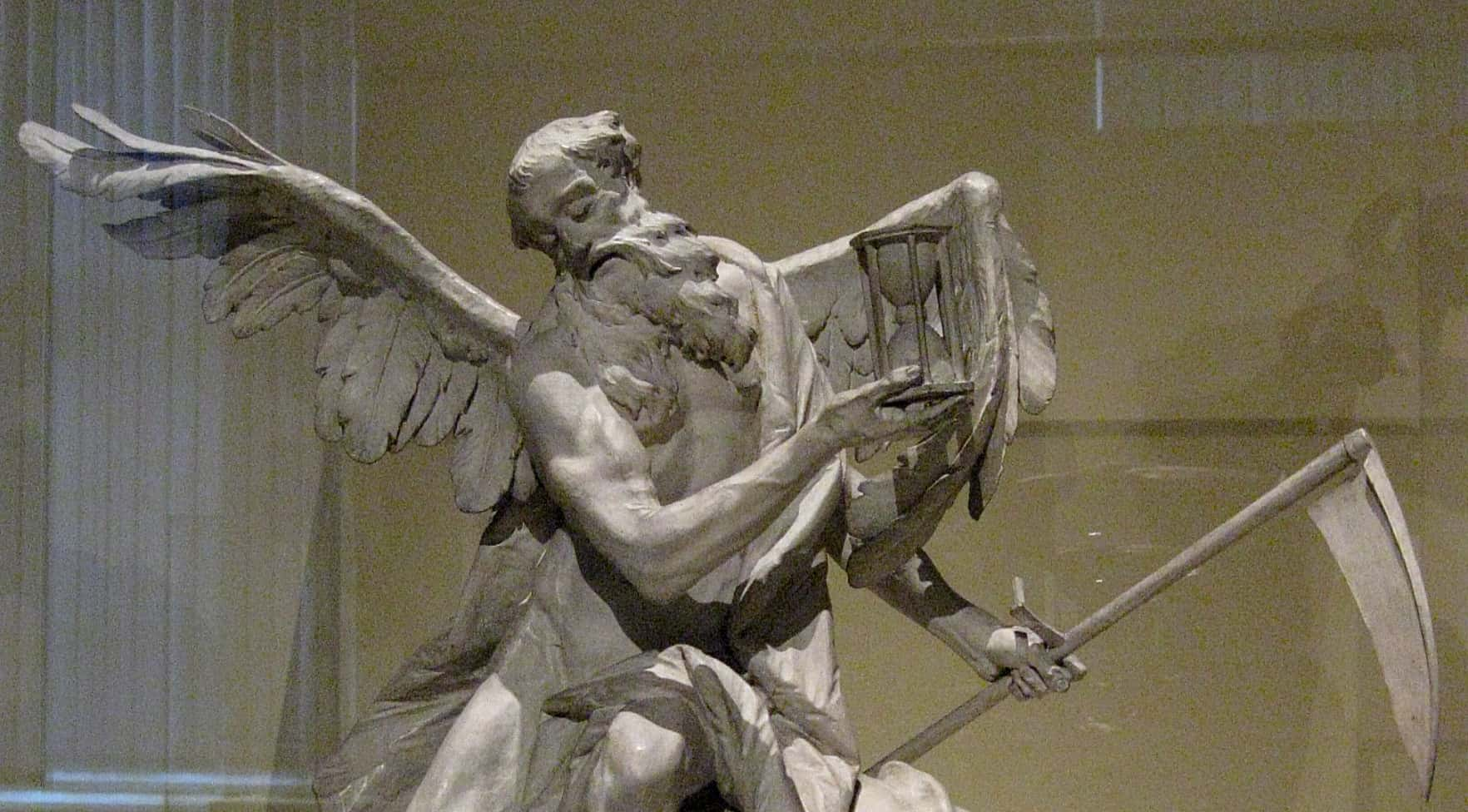 Wikimedia.Commons
Wikimedia.Commons
11. Seems Legit
The reason why the seasons exist is because of the famous abduction of Persephone, the daughter of Demeter, the goddess of the harvest. Hades, bored and lonely in the underworld, captured his niece Persephone and dragged her down to the underworld to be his bride. Demeter, crazed with grief, neglected her duties as she searched for her daughter, causing all crops to wither and die. Eventually, it was discovered that Persephone was in the underworld and Zeus ordered his brother to give Persephone back. However, Persephone had eaten six pomegranate seeds when she was down in the underworld, meaning that she was forced to spend six months out of every year with Hades. Therefore, this causes winter, as Demeter bemoans the loss of her daughter, while spring and summer return when Demeter is reunited with her.
10. How Dad Killed My Mom
Dionysus isn’t just the youngest of the Greek gods, he was also born to a mortal woman. The woman Semele attracted the eye of Zeus (that old story) and he impregnated her. When she found out, Hera visited her in the disguise of an old woman and mocked Semele’s claim that her child’s father was Zeus. As Hera planned, Semele asked Zeus to reveal himself to her as he really looked, so as to prove that she truly slept with a god. Though he didn't want to, Zeus had promised Semele that he would grant any request she gave him, so when she asked he revealed his godly splendor to her, causing her mortal frame to wither into ash at the sight. However, Zeus managed to rescue their unborn child by stitching it into his thigh. After gestating within the god for a time, Dionysus eventually leapt forth, ready to party!
9. Too Hot for This World
Zeus was once so hot to behold, it literally killed a lady. Let us explain: one night, the Theban princess Semele was visited by Zeus. She couldn’t see his godly form in the darkness, but she did sense that a divine being was present. Naturally, they slept together.
When Zeus’s wife Hera heard Semele boast about carrying Zeus’s baby, the goddess disguised herself as a human nurse and asked how she knew. When Semele told Hera she didn't have any proof, Hera “helpfully” suggested she ask to see this god for herself.
The next time Zeus came to Semele, he was delighted with her pregnancy and promised her anything she wanted. But the one thing that she wanted was to see him with her own eyes. Well, Zeus would never break a promise (just his marriage vows), so he revealed himself in his true form. The glorious sight was so powerful, Semele burned to death.
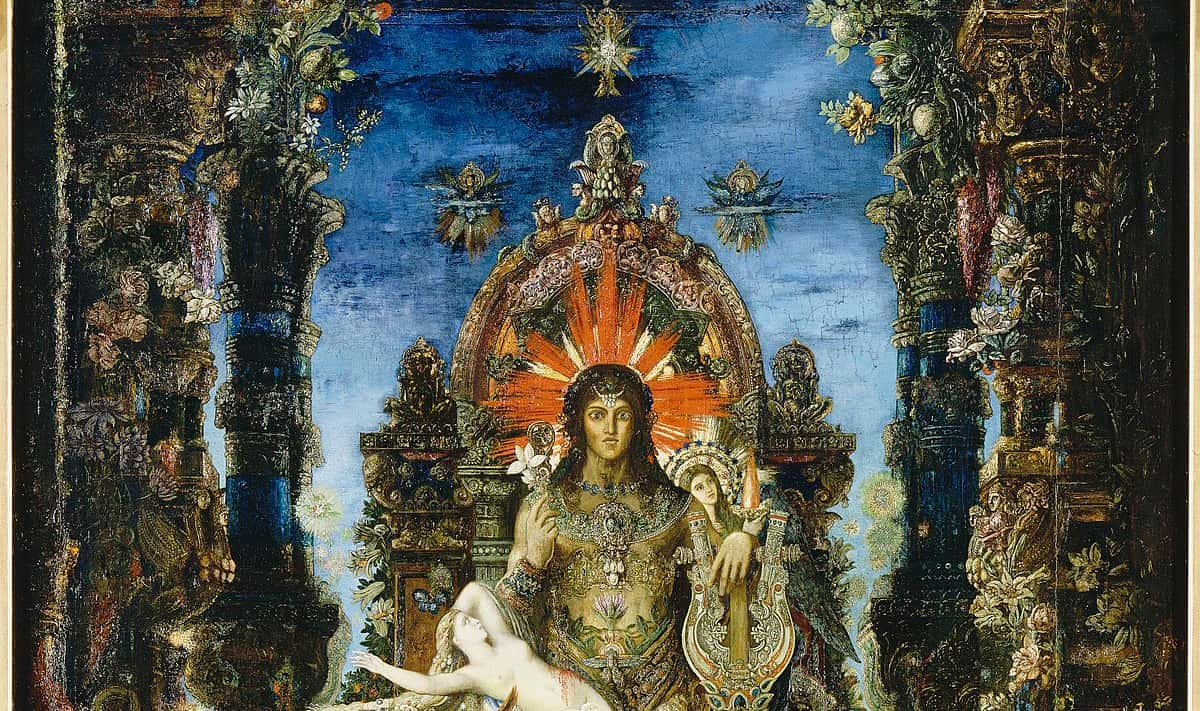 Wikipedia
Wikipedia
8. Unlucky in Love
Apollo had his share of male and female lovers, but despite the fact that he was an Olympian, things didn’t always work out for him. One of his most well-known unrequited loves was Cassandra, a princess of Troy. Apollo wooed her with the gift of prophecy, but once she had the gift, she rejected him, confident that an immortal’s gift couldn't be reversed or taken away again. In his cold revenge, Apollo added a curse to the gift instead; Cassandra would be able to see the future, but nobody would believe her.
7. Love Me Tender
Another one of Apollo’s tragic love affairs was with a Spartan prince named Hyacinth. The prince was so handsome, in fact, that he also attracted the jealous eye of Zephyrus, the west wind. One day, when Apollo and Hyacinth were throwing discus with each other (not a euphemism), Zephyrus redirected the metal discus thrown by Apollo and caused it to kill Hyacinth with a fatal blow to his head. Grief-stricken, Apollo drew a new flower from Hyacinth’s blood and named it in his honor. The Spartans subsequently had a celebration called the festival of the Hyacinthus.
6. That Ain’t My Boy!
Contrary to Disney’s take on Hercules' story, Hades has almost nothing to do with the hero, known as Heracles or Herakles by the Greeks. The real antagonist of the hero’s life was Hera, Zeus’s wife. Hera despised Heracles for being yet another one of Zeus’ illegitimate kids, and the fact that his mortal parents named him Heracles in the first place. Ironically, they’d given Heracles the name (meaning “glory of Hera”) in an attempt to appease Hera’s wrath.
5. You Just Made Yourself a Powerful Enemy!
Hera proved a truly frightening antagonist to Heracles. When he was a newborn infant, she sent two poisonous serpents into his crib to kill him, only for Heracles to use his immense strength to strangle the serpents to death. Later, she made him go insane, leading to him inadvertently killing his own wife and children. Later, she tried to kill him on numerous occasions during his Twelve Labors.
4. Awkward Adultery
The most famous account of Ares’ mishaps is when he began having an affair with Aphrodite, the goddess of love. This didn’t sit so well with Hephaestus, Aphrodite’s husband. In revenge, Hephaestus ensnared Ares and Aphrodite in a net when they were lying in bed together in the act of passion. Hephaestus proceeded to drag them to Mt. Olympus and shame them for the other gods’ amusement.
3. Chaos is a Ladder
Everyone knows about Ares, the God of War, but few have heard the chilling stories about his dark sister—Eris, the Goddess of Chaos and Strife—whose scheming initiated the most cataclysmic event in Greek history: The Trojan War. Eris sparked the legendary conflict, all because she was annoyed she wasn’t invited to a wedding. The lesson? Do not get on Eris’s bad side.
2. Rough Upbringing
Zeus had countless children outside of his marriage to Hera, so to get back at him, she claimed that their son, Hephaestus, was a virgin birth, ie., not Zeus's child. This made the Thunder God furious, and he brutally took out his rage on the boy in question, throwing the infant Hephaestus from the top of Mount Olympus, an act which left him horrifically maimed forever.
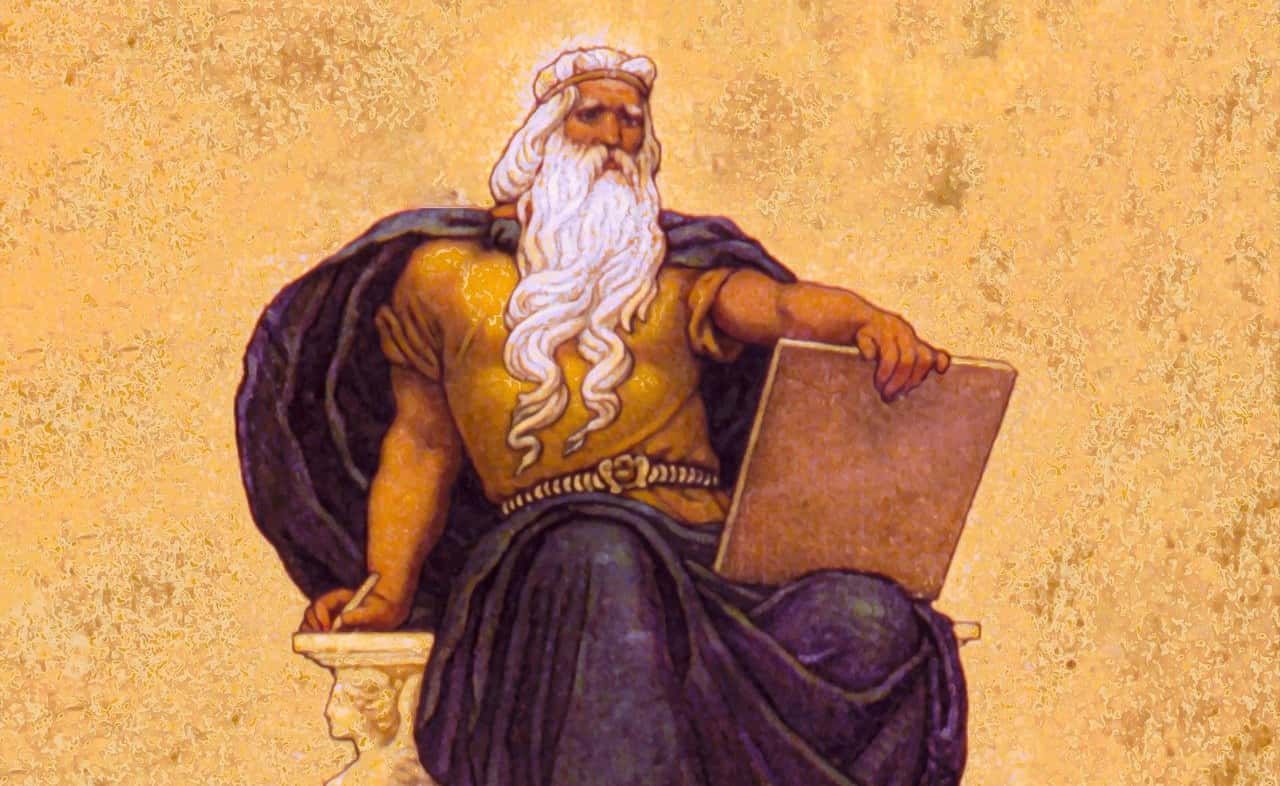 Pixabay
Pixabay
1. God Imitating Life
Interestingly, Hephaestus’s ugliness has been blamed by some scholars upon an ancient technique practiced by smiths. During the Bronze Age, smiths needed to strengthen copper, and while tin would have been a perfect material for that task, it was hard to obtain. As a substitute, the smiths of old would use arsenic as part of their metalwork. The smiths would regularly be exposed to arsenic poisoning, affecting their physical appearance and putting them at serious risk of cancer. The smith god’s ugliness would certainly have been reflected in those following in his line of work!
Sources: 1, 2, 3, 4, 5, 6, 7, 8, 9, 10, 11, 12, 13, 14, 15, 16, 17, 18, 19, 20, 21, 22, 23


